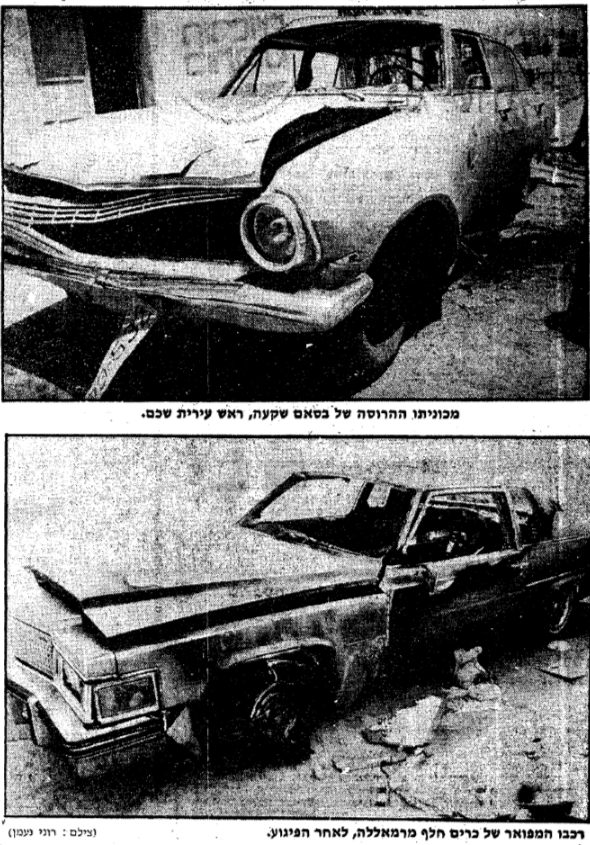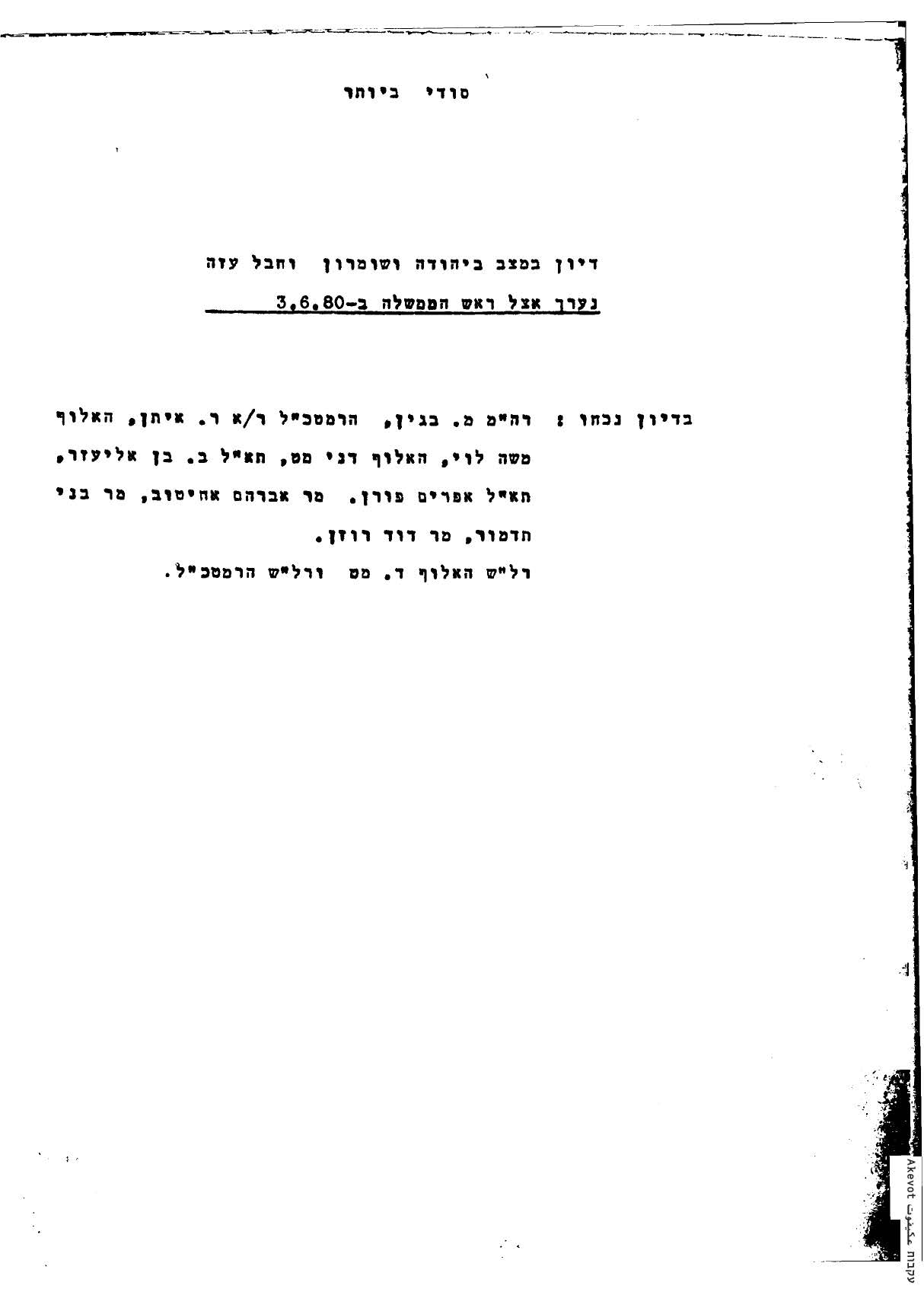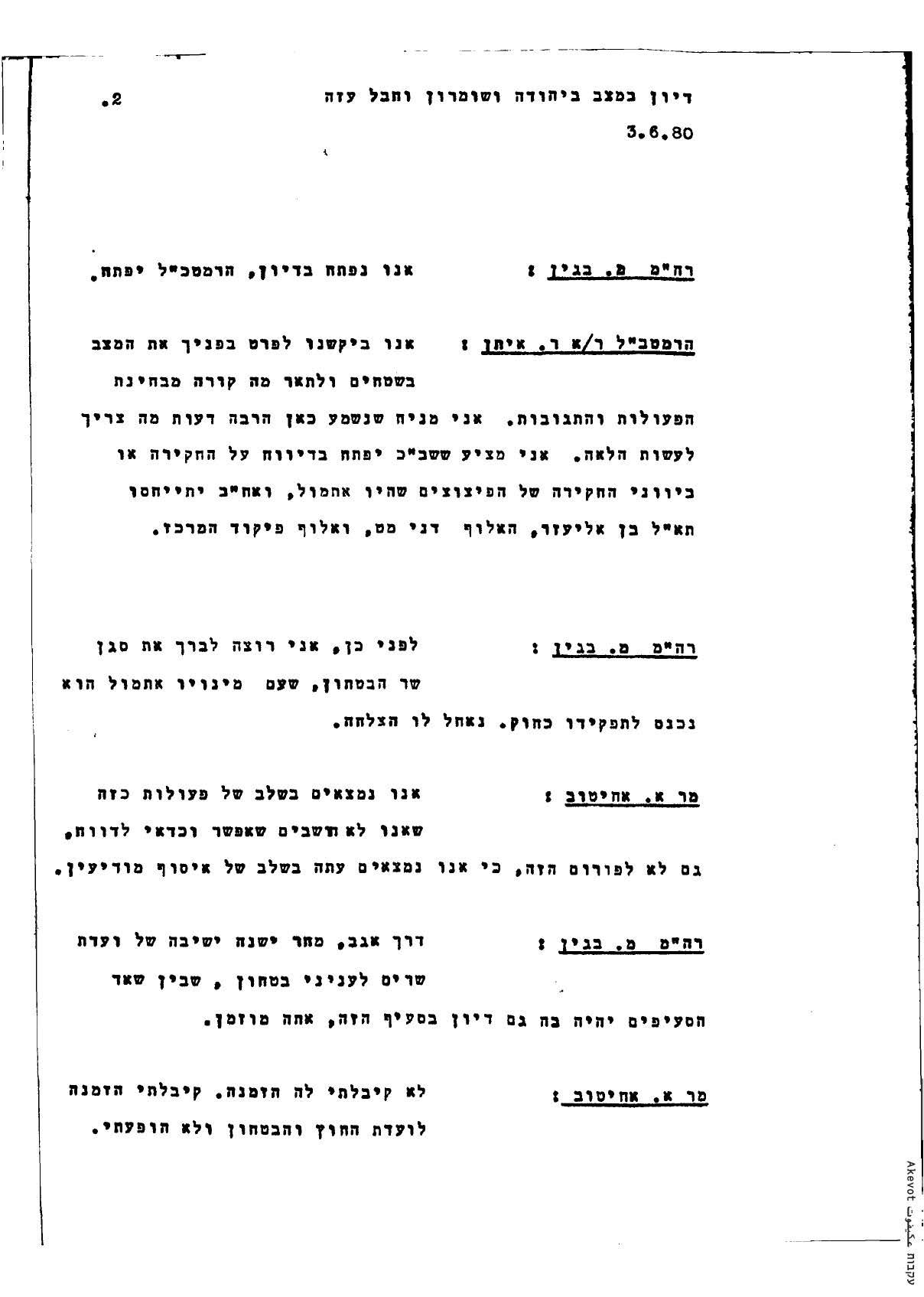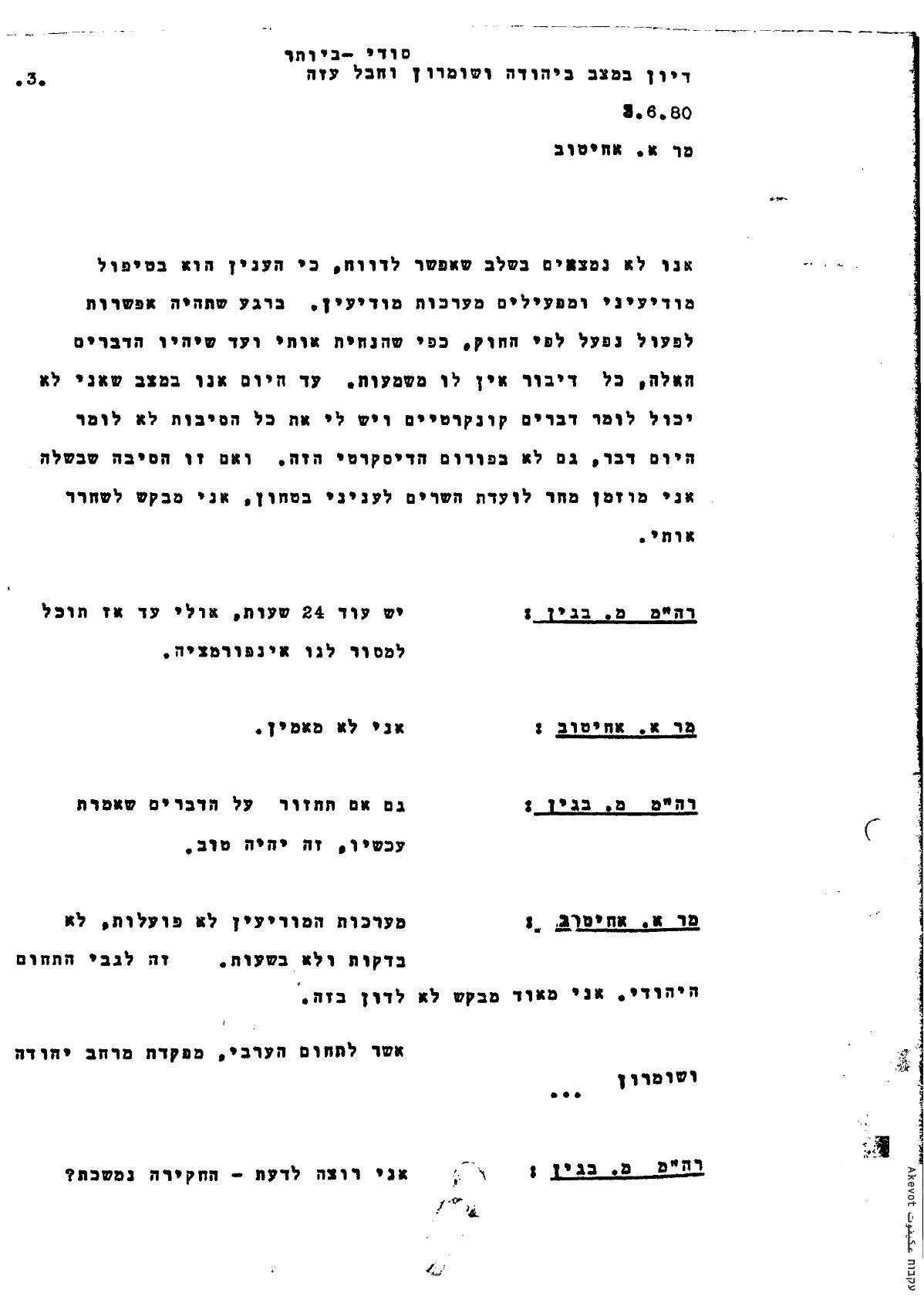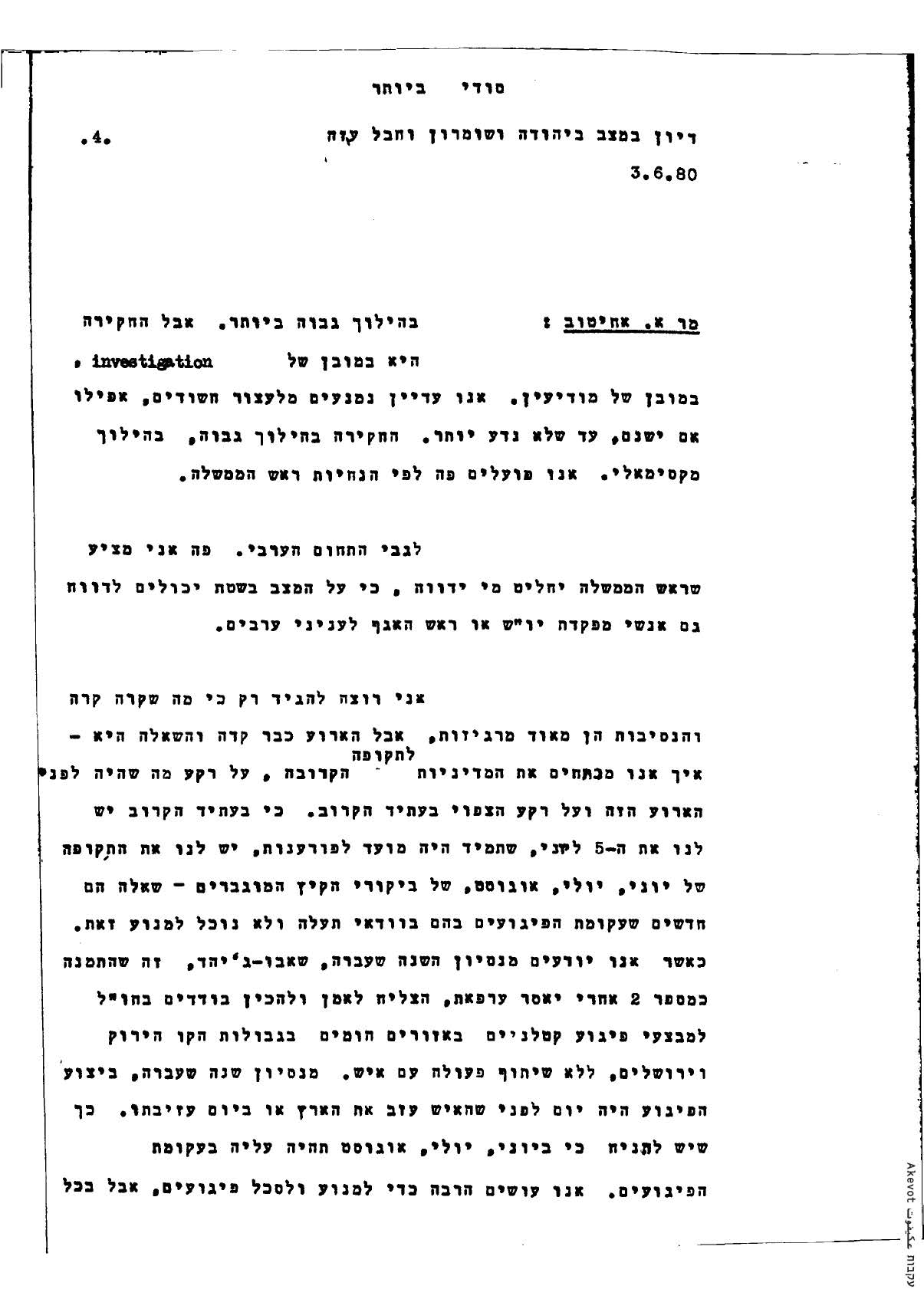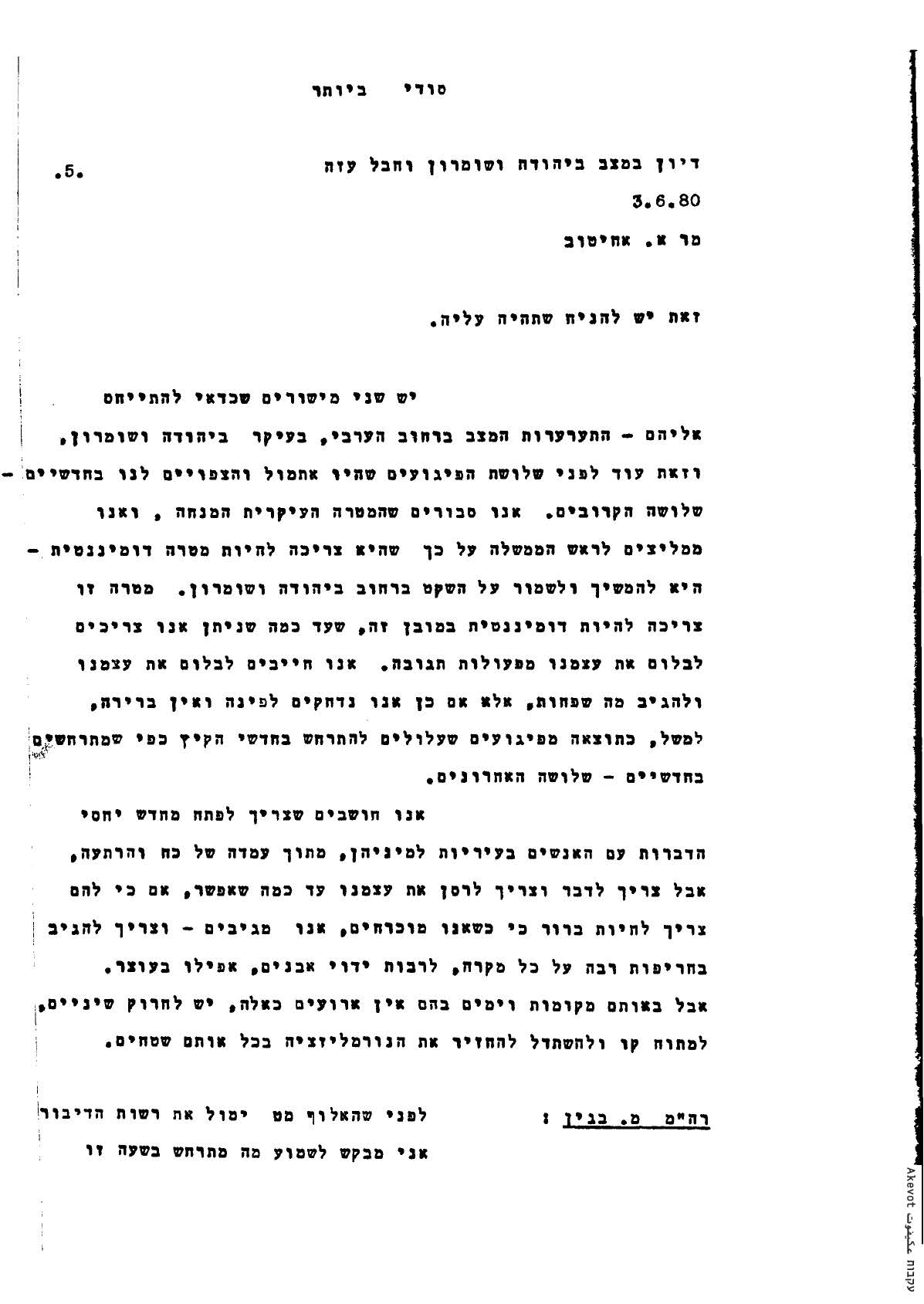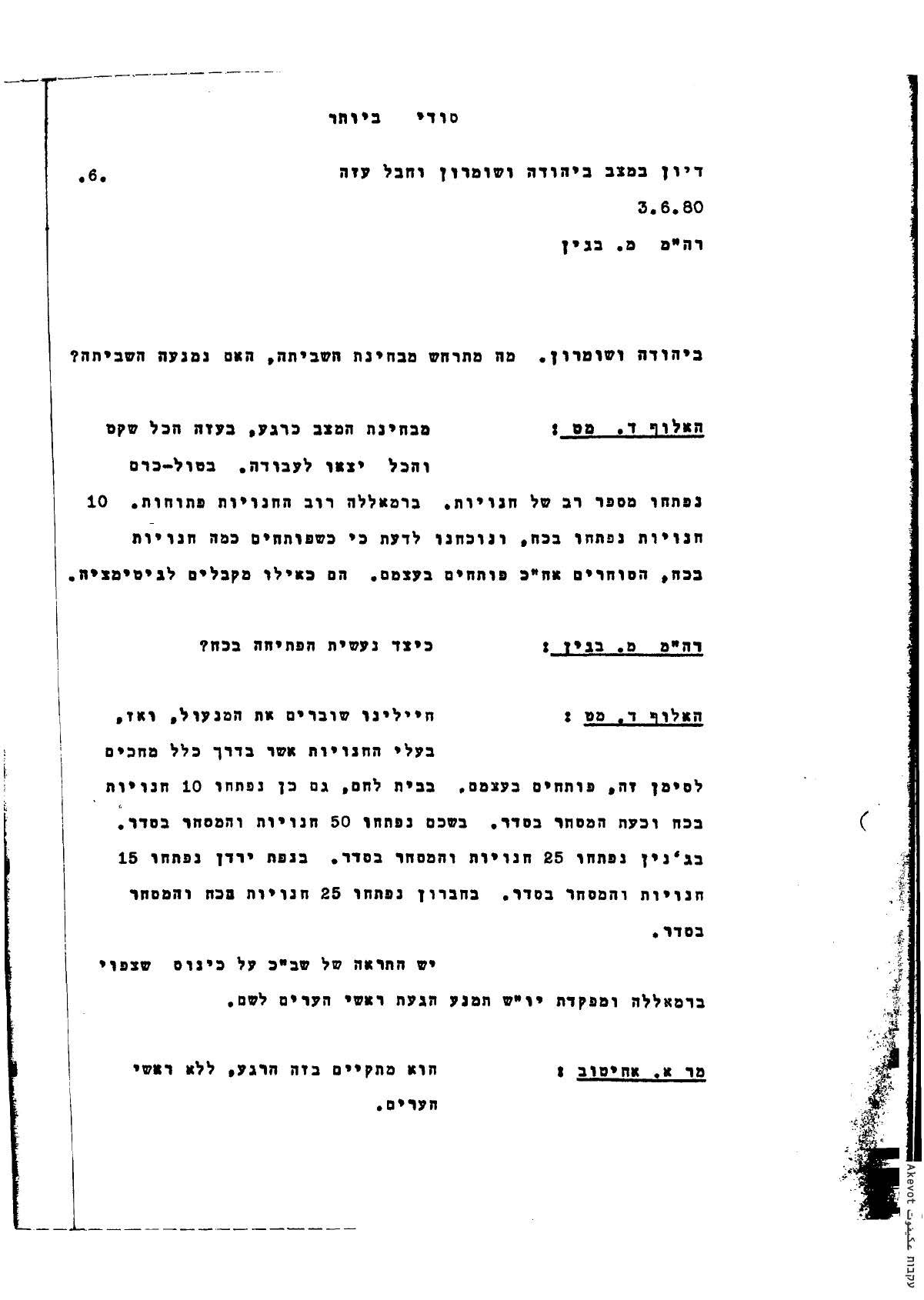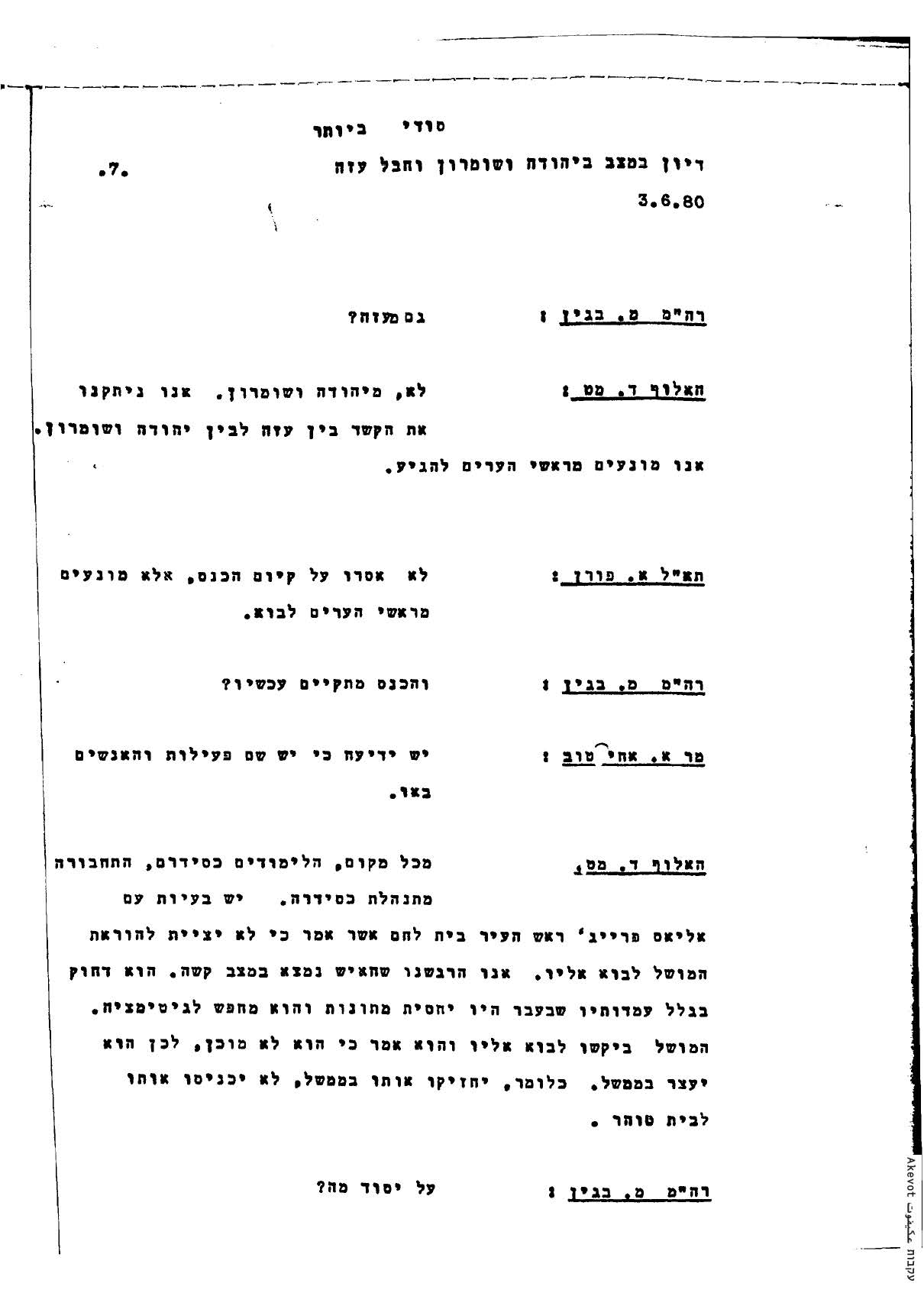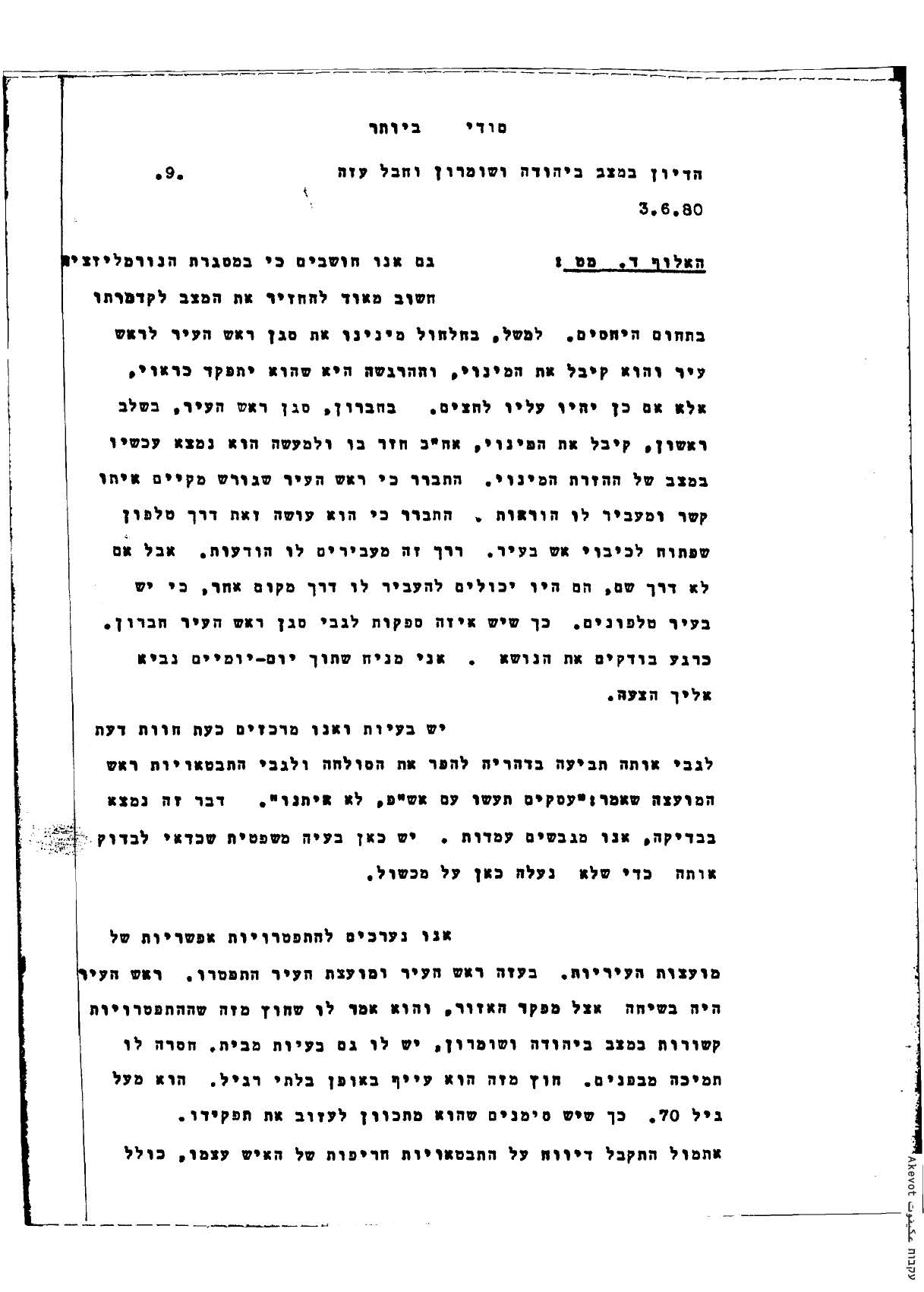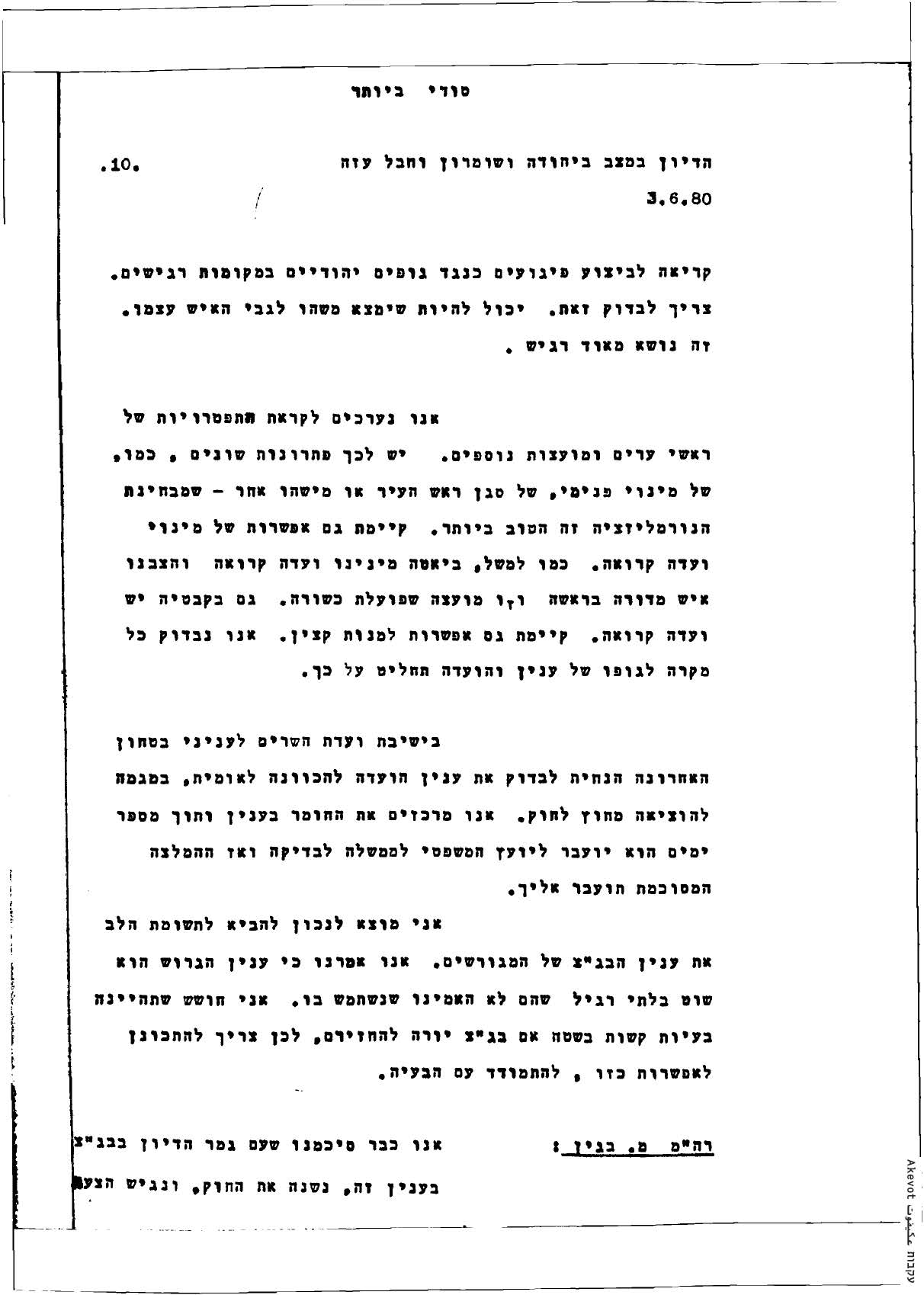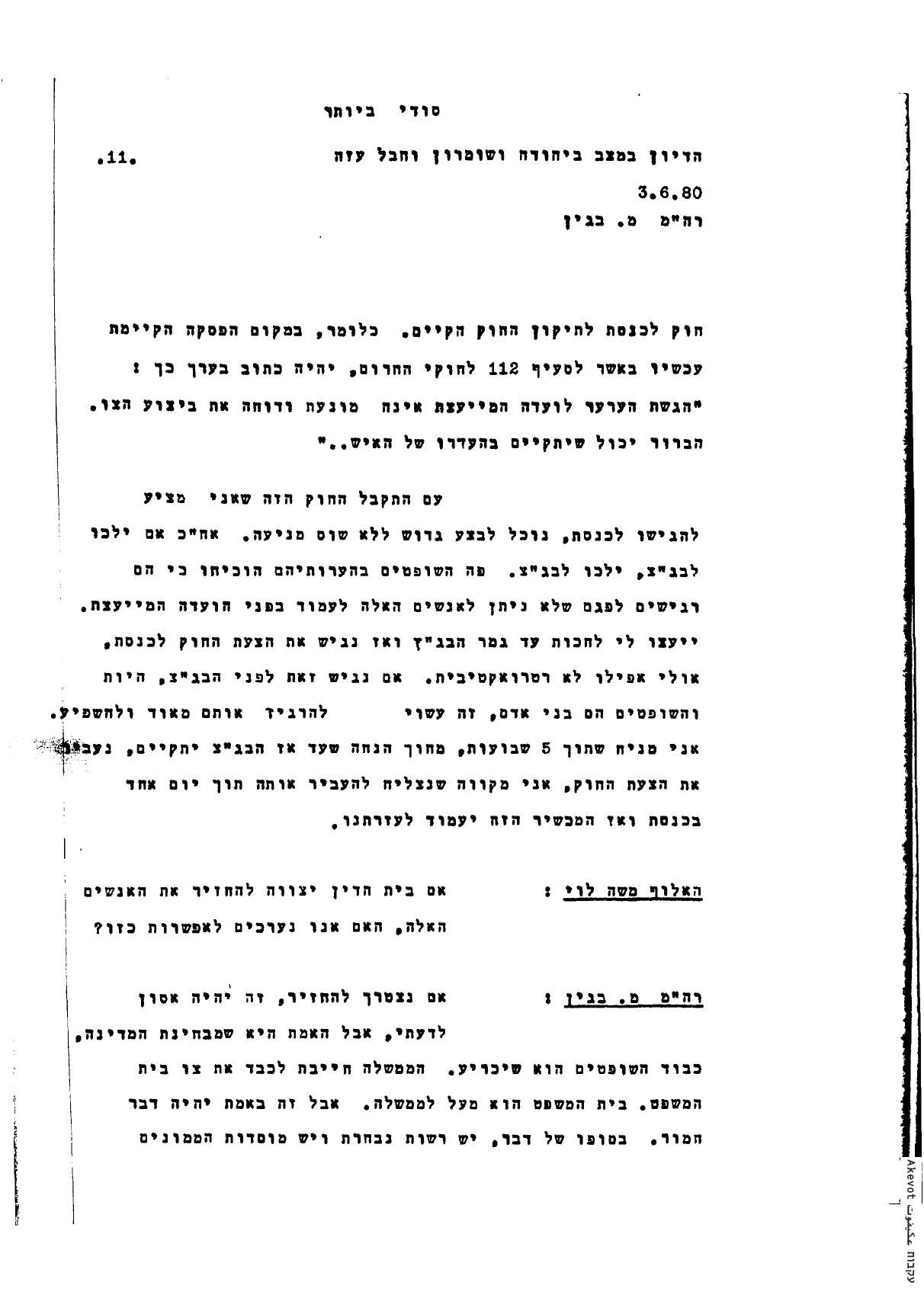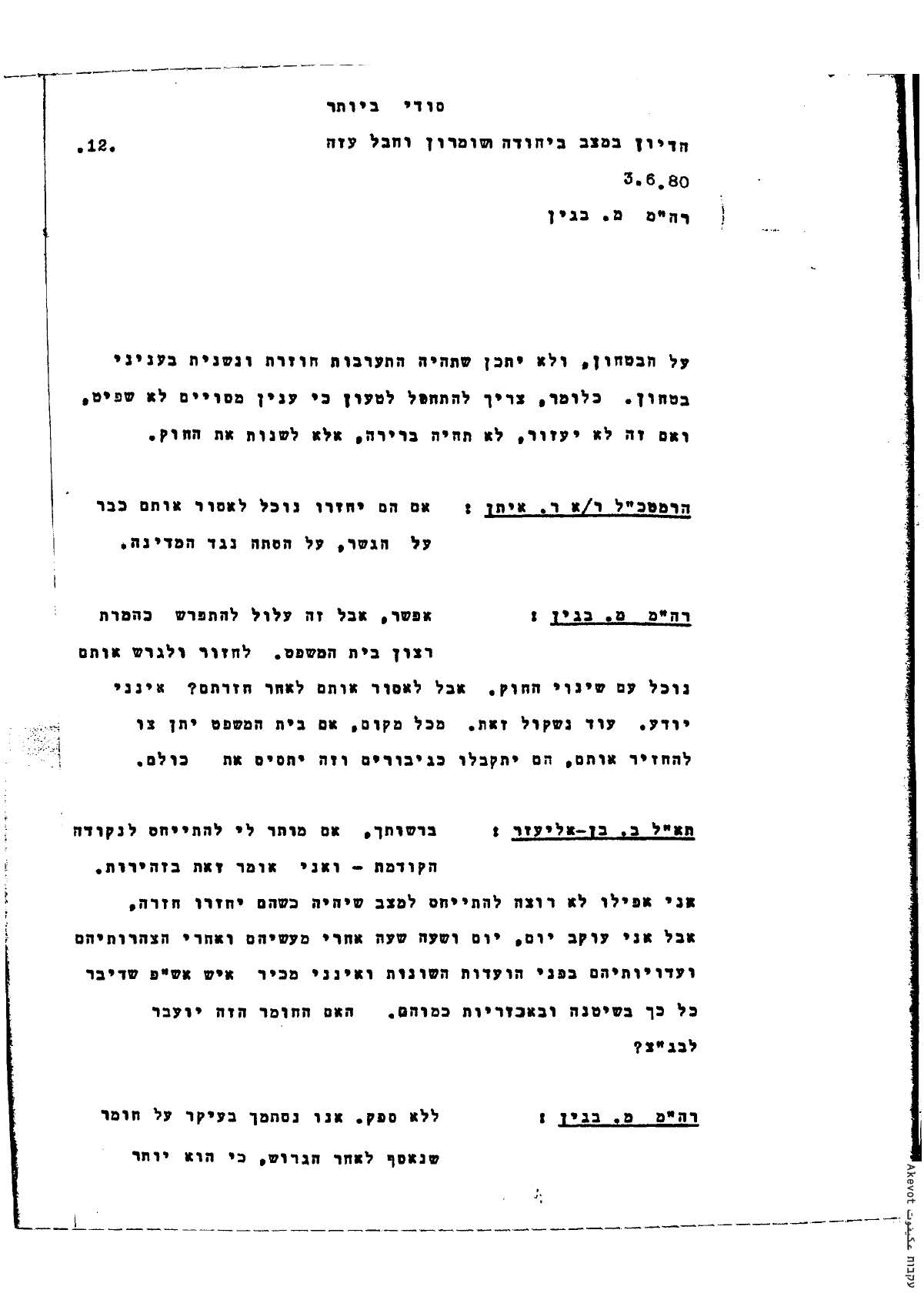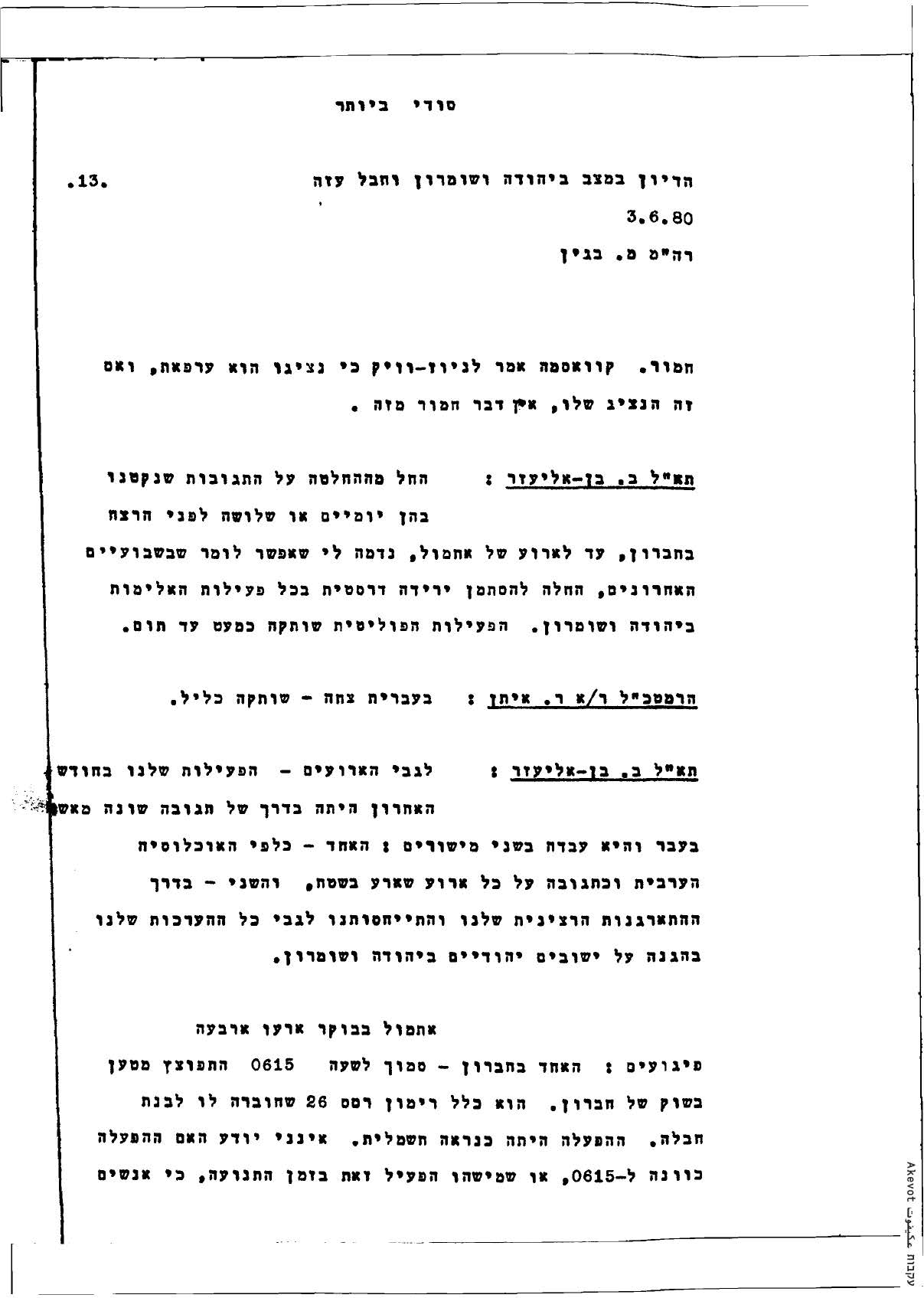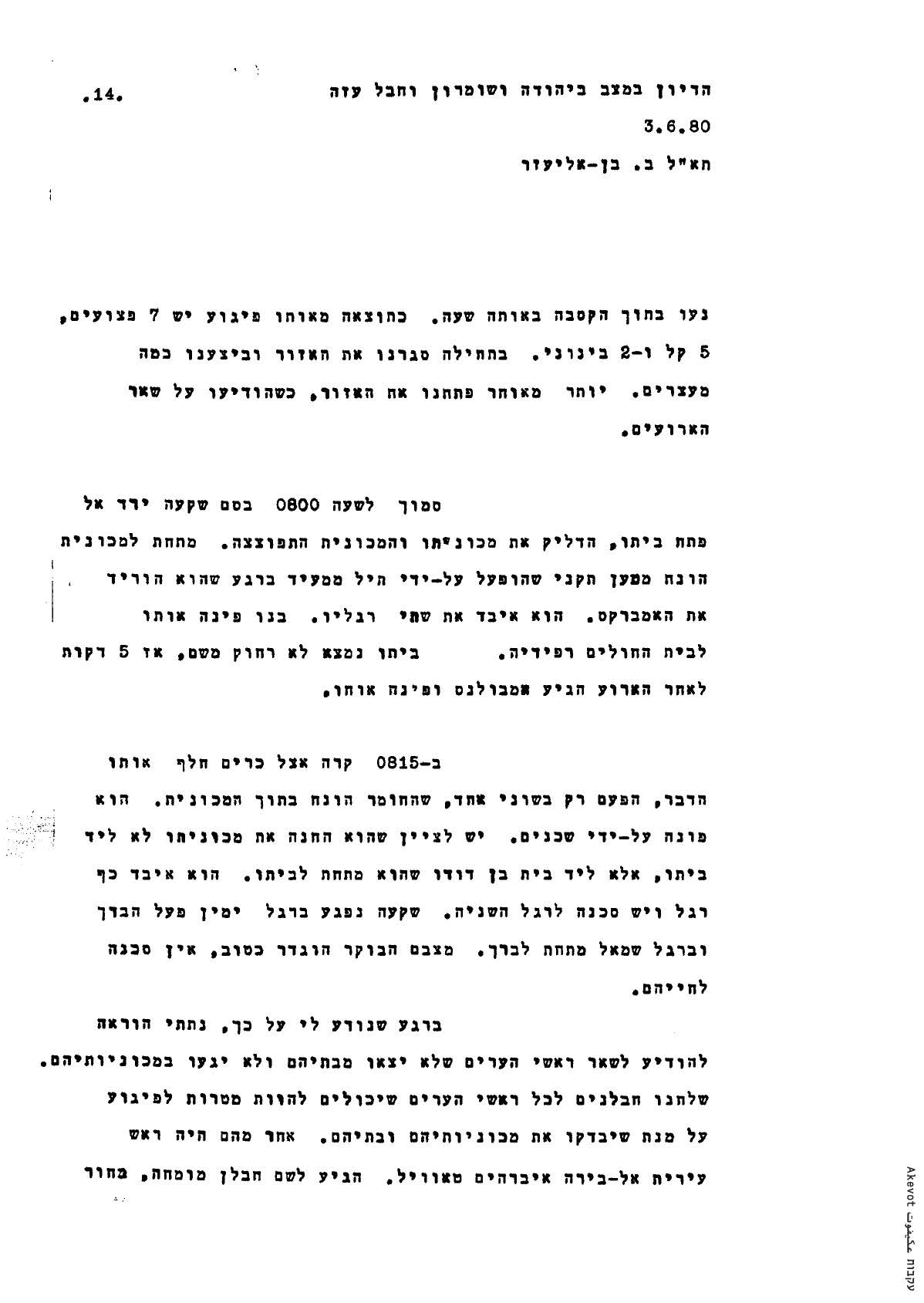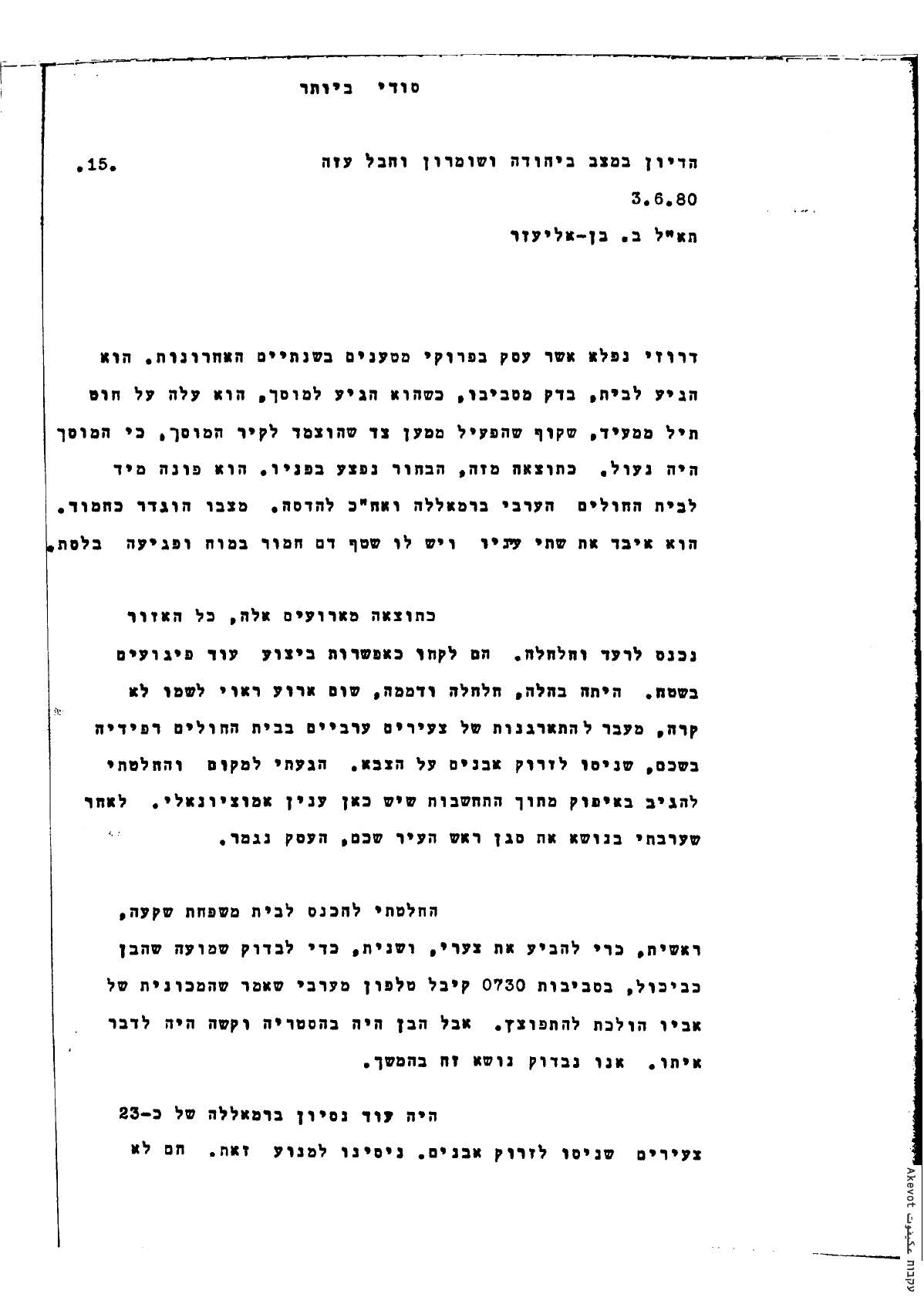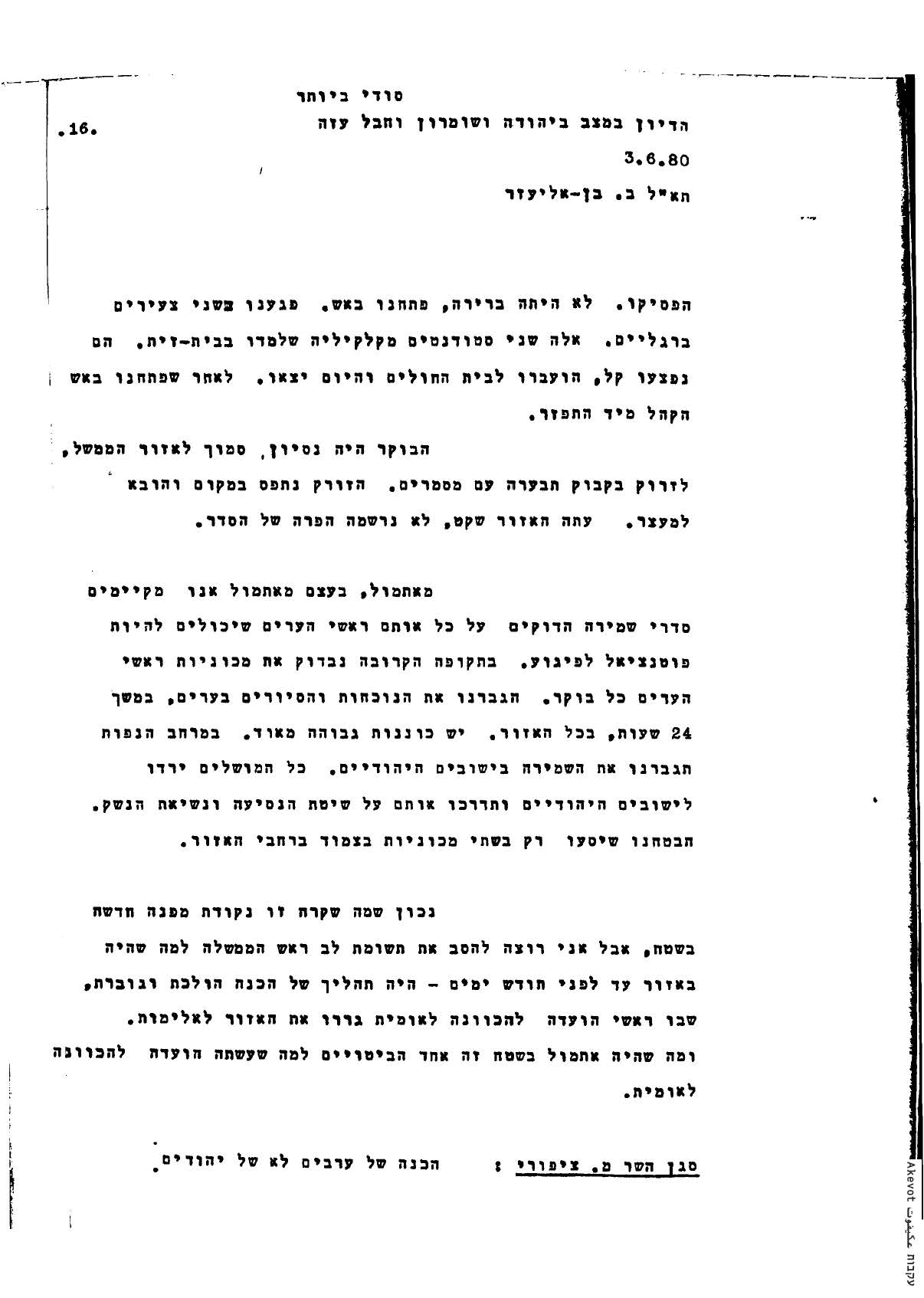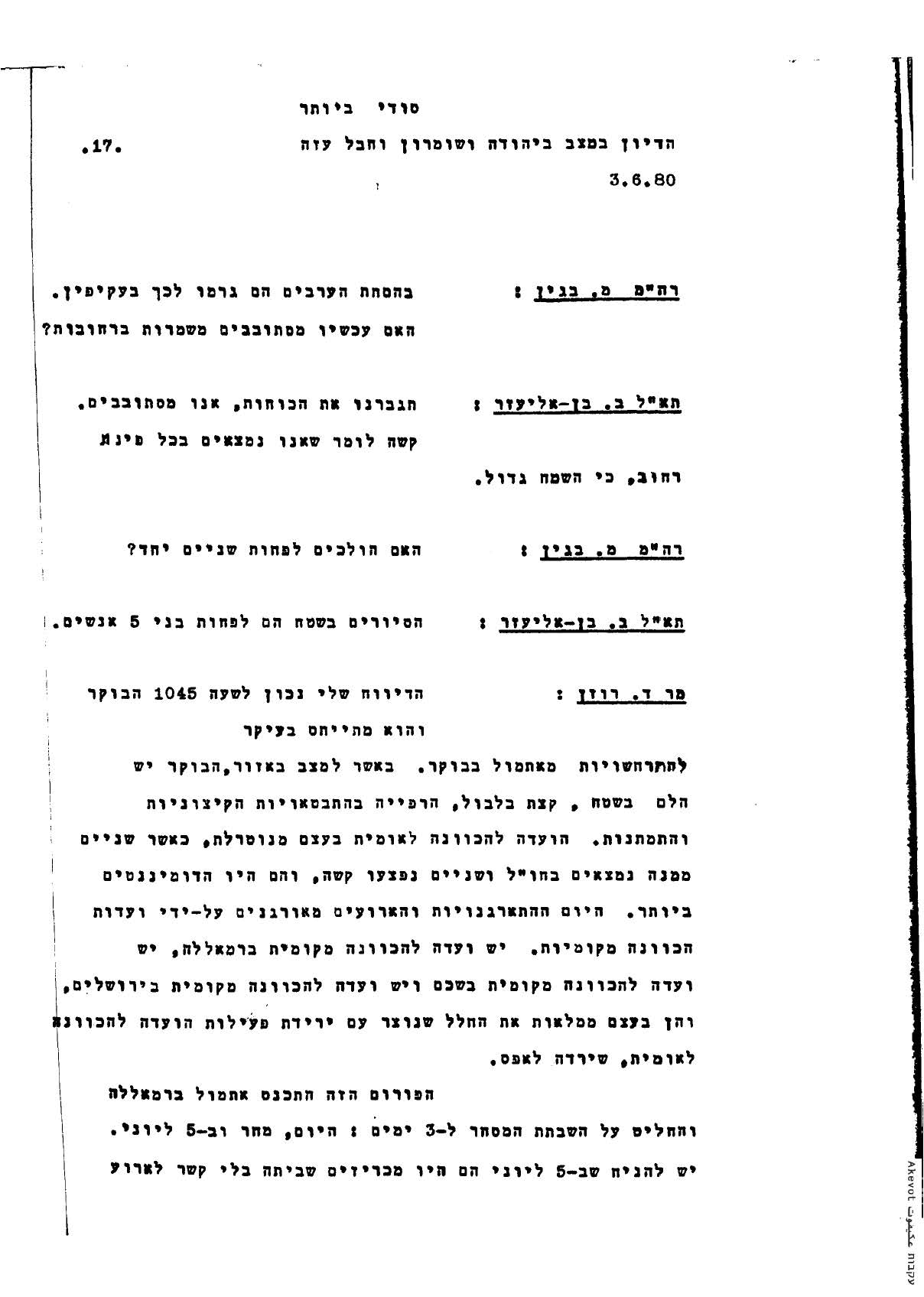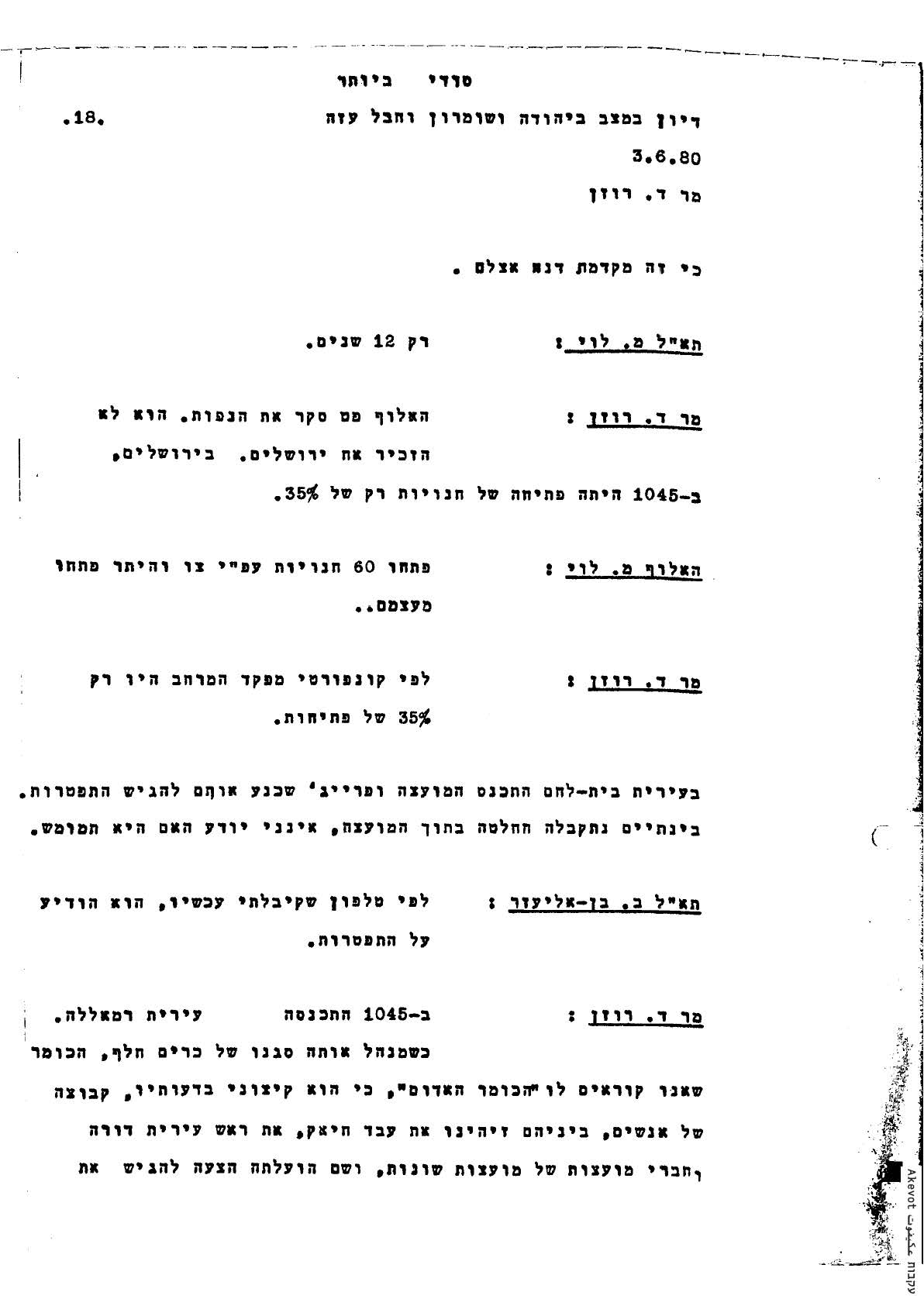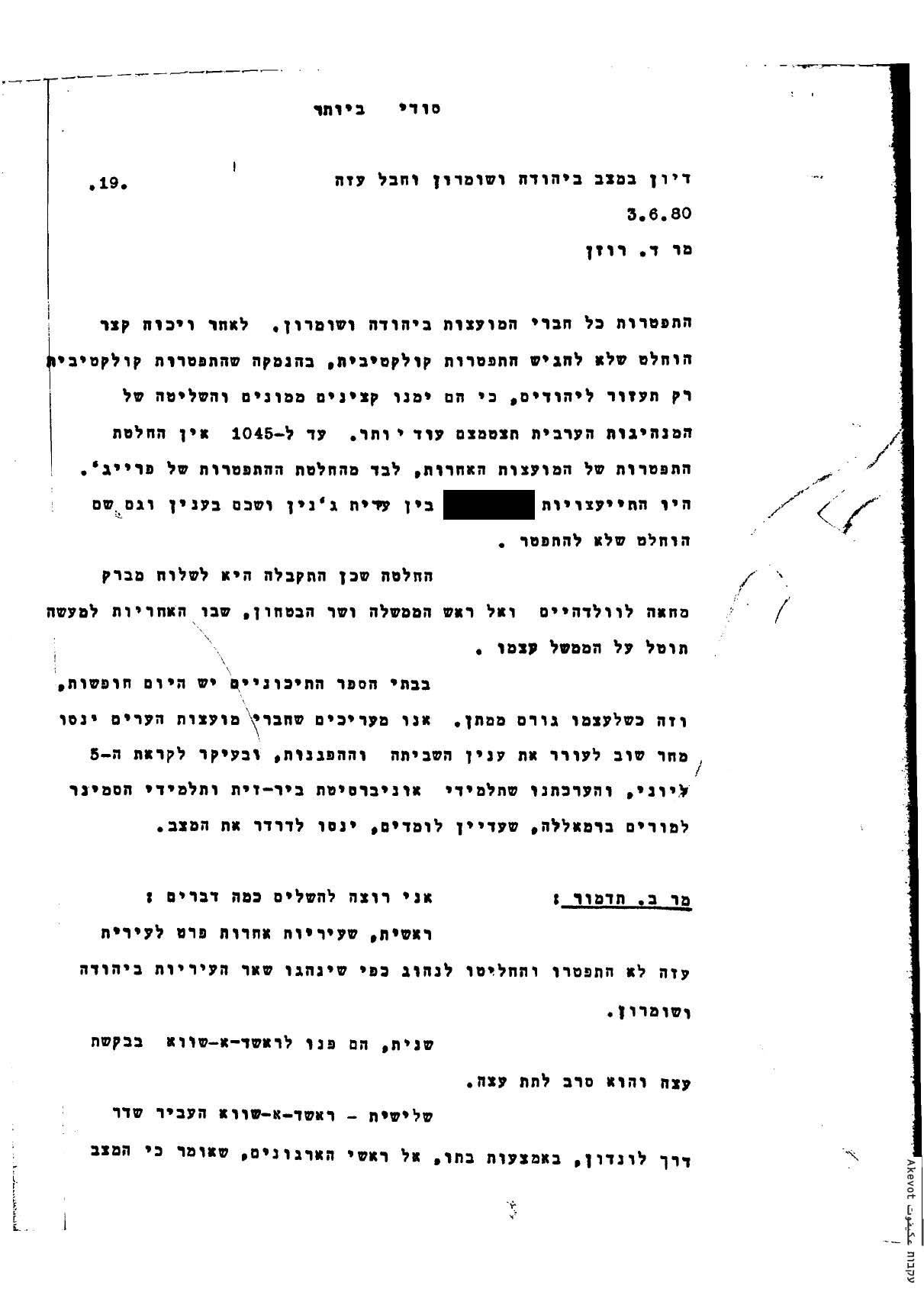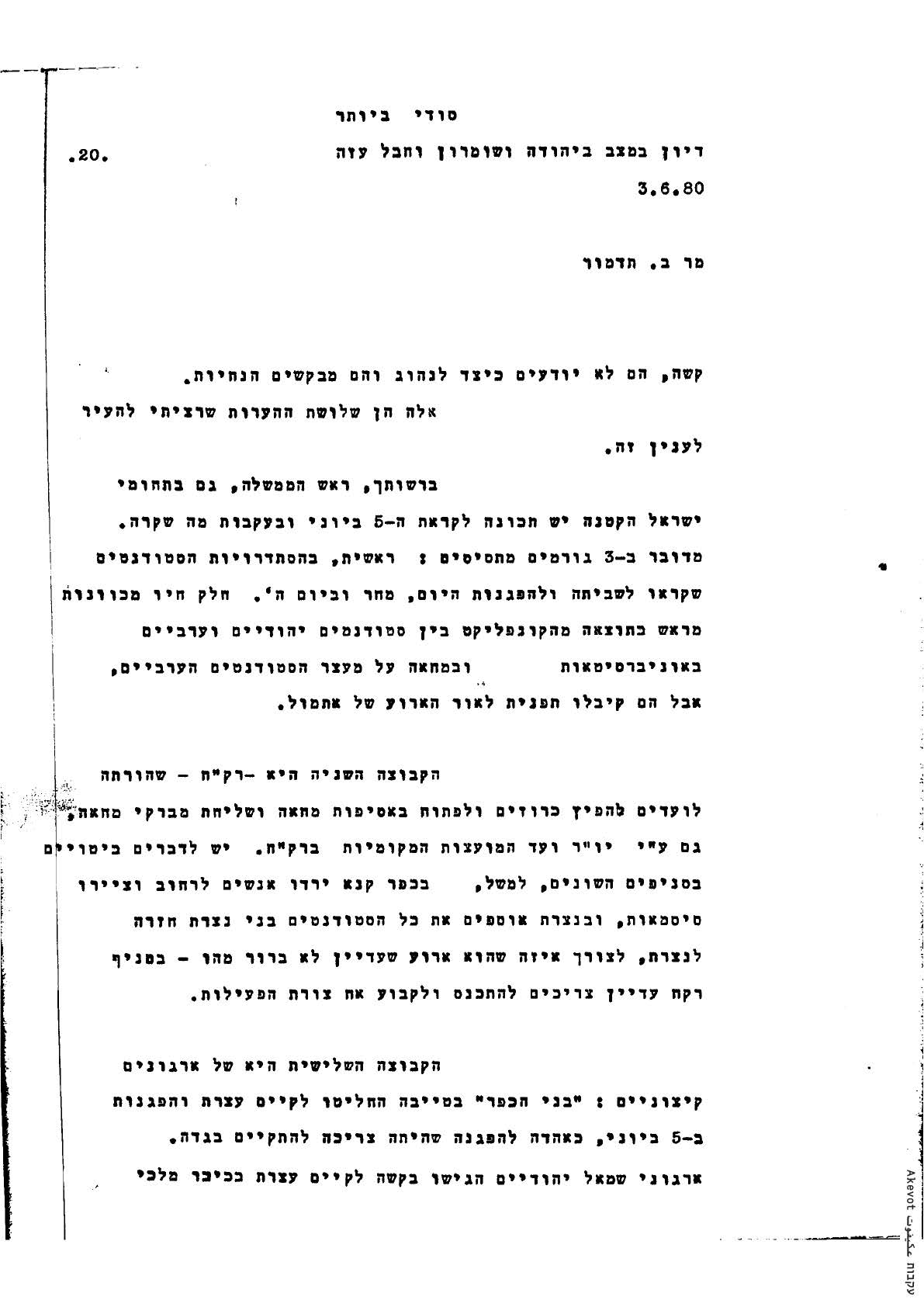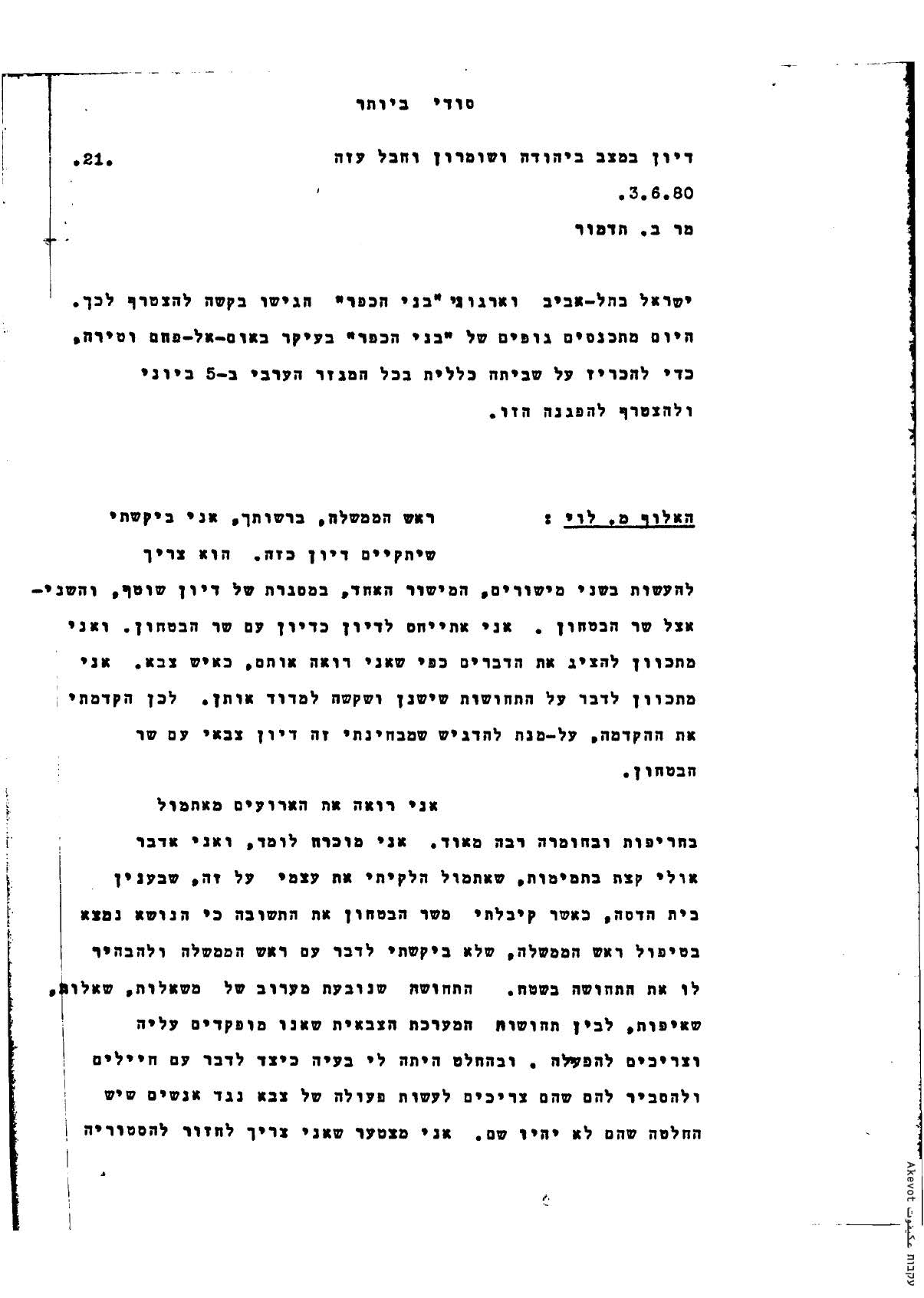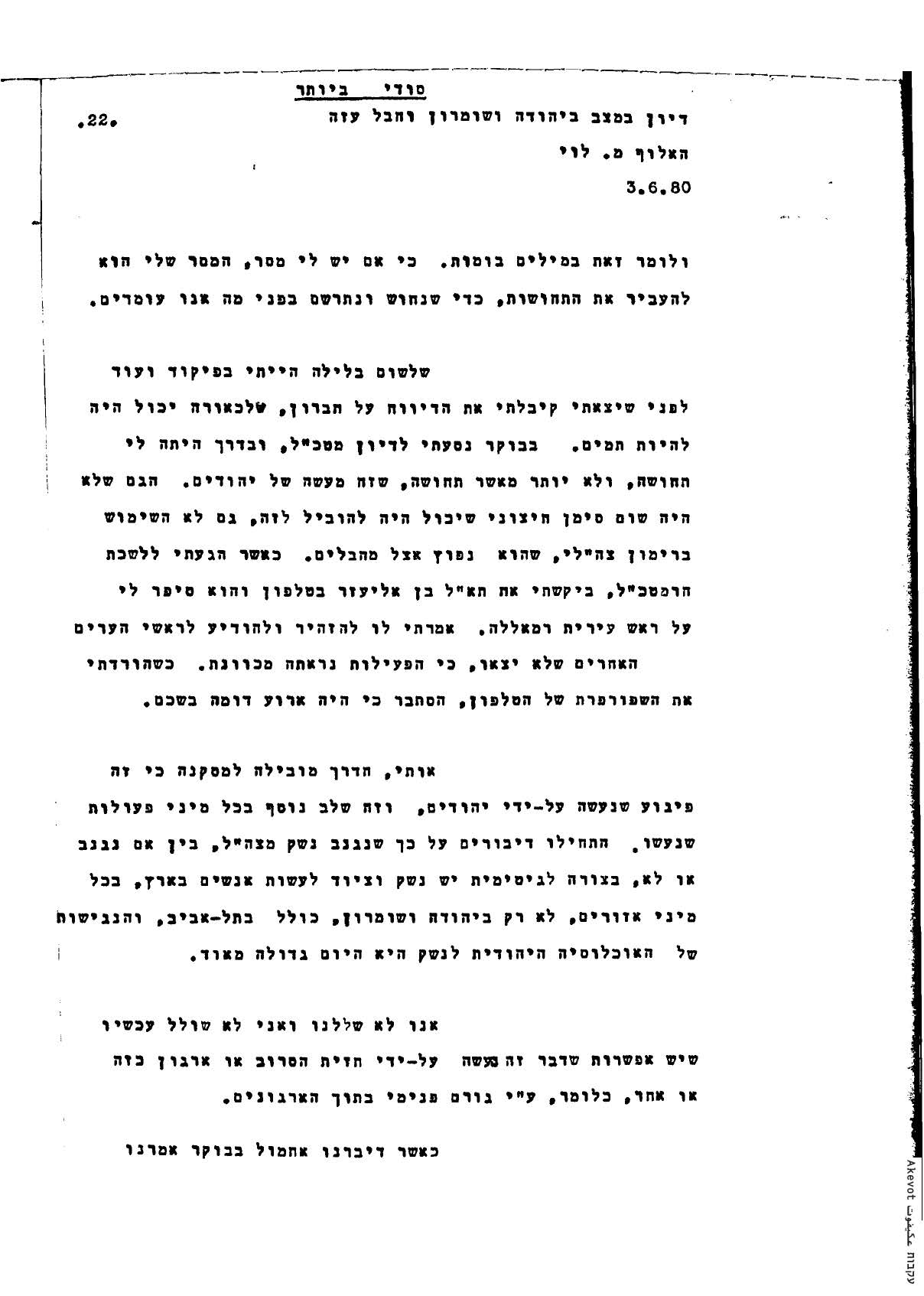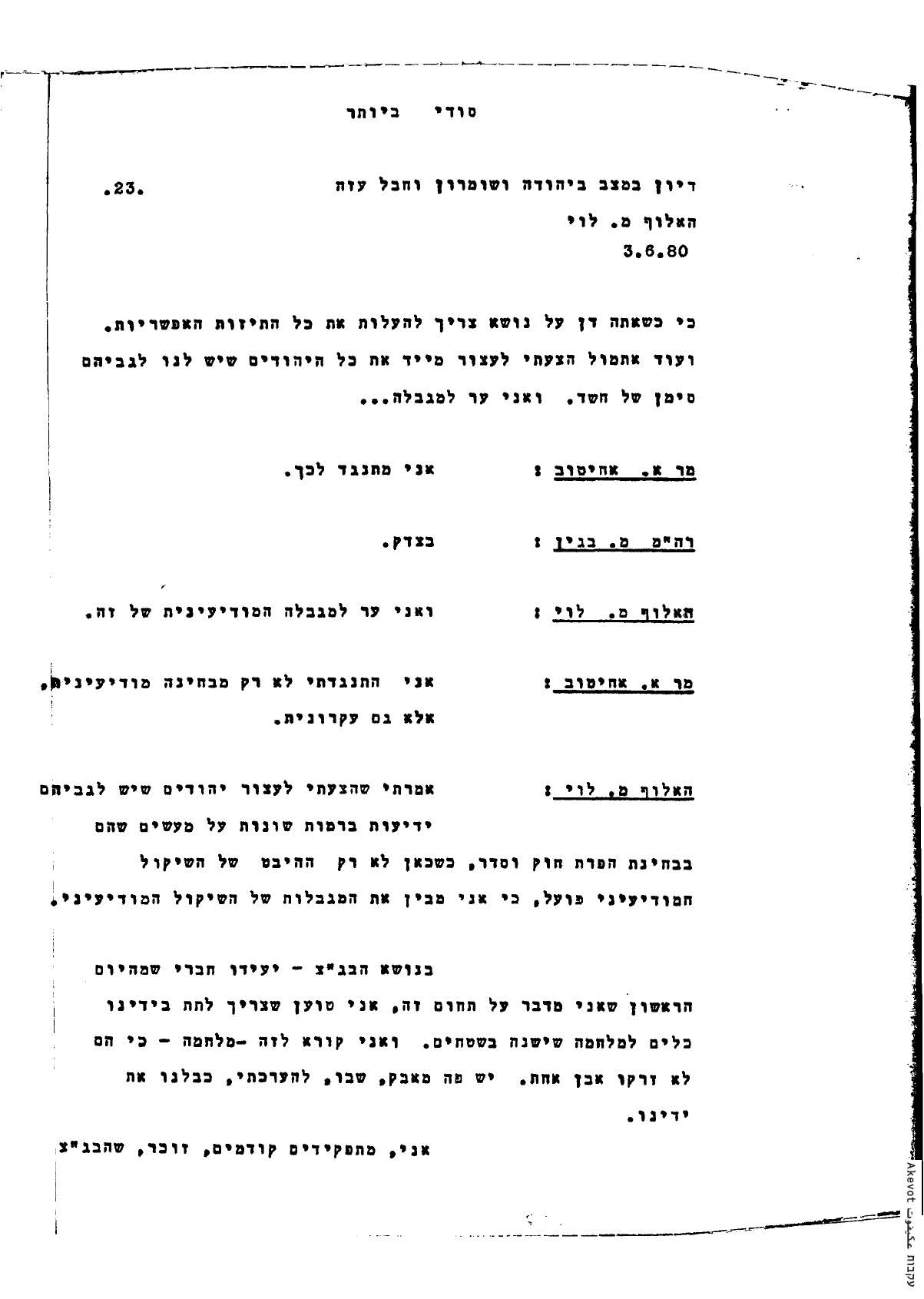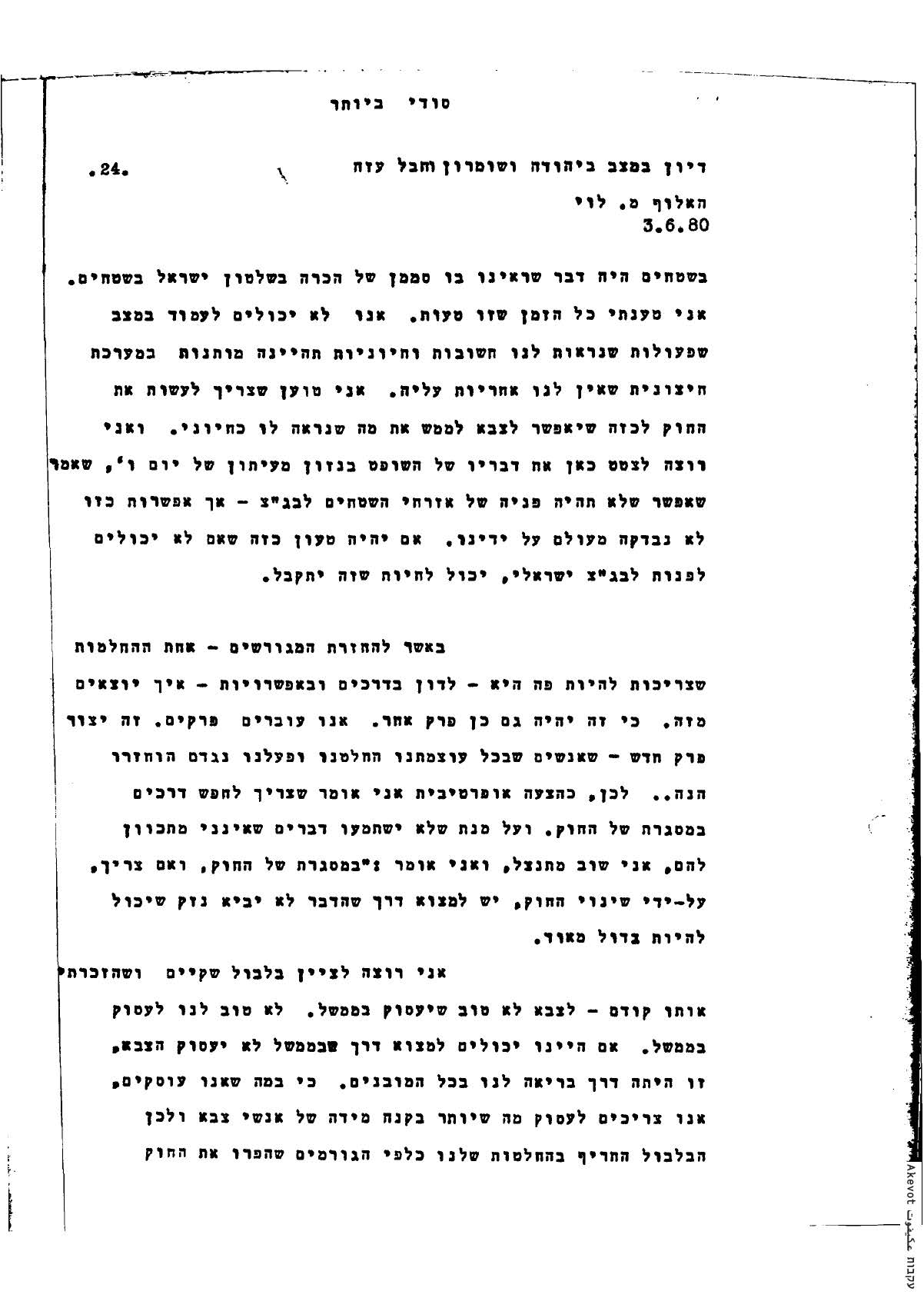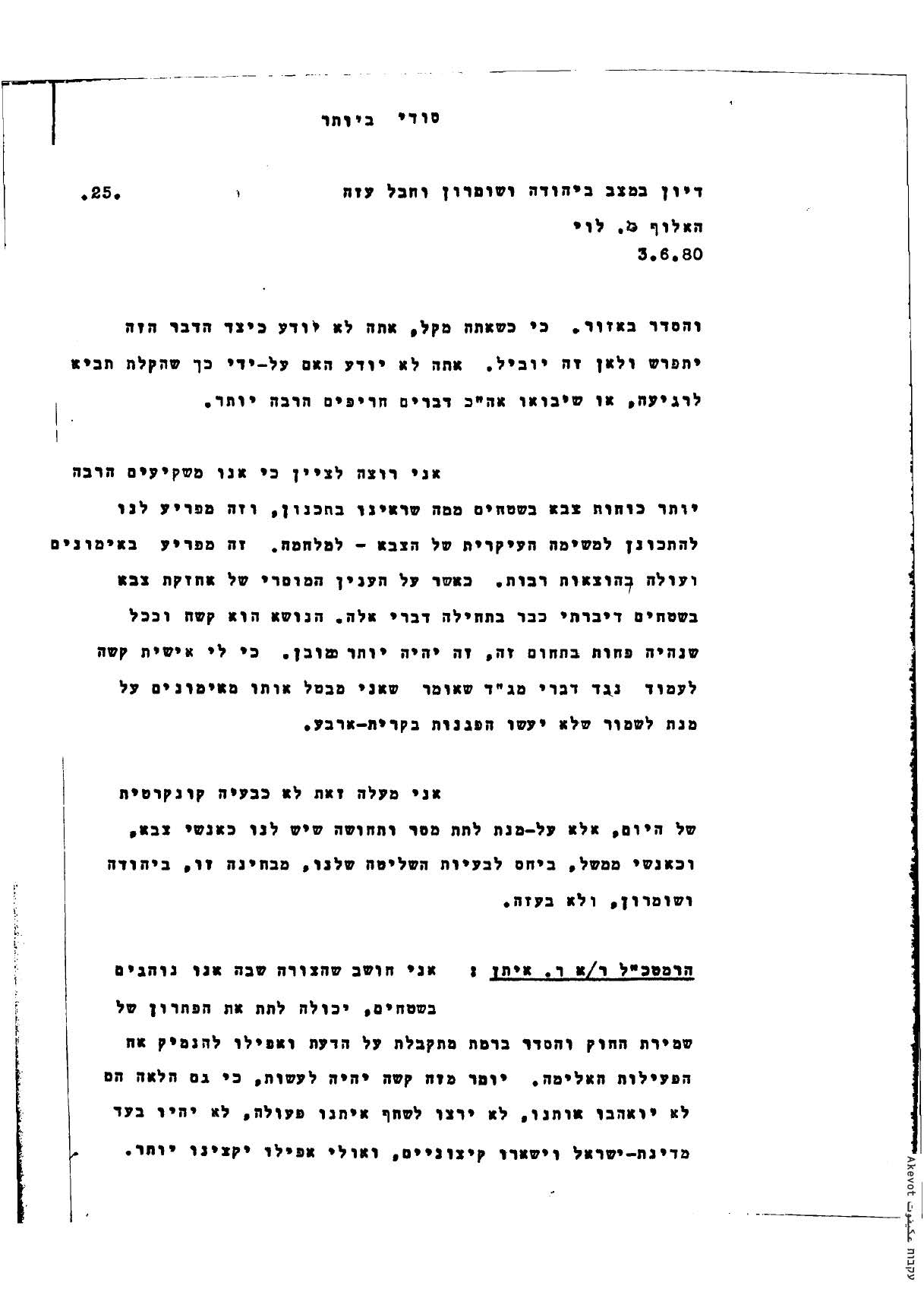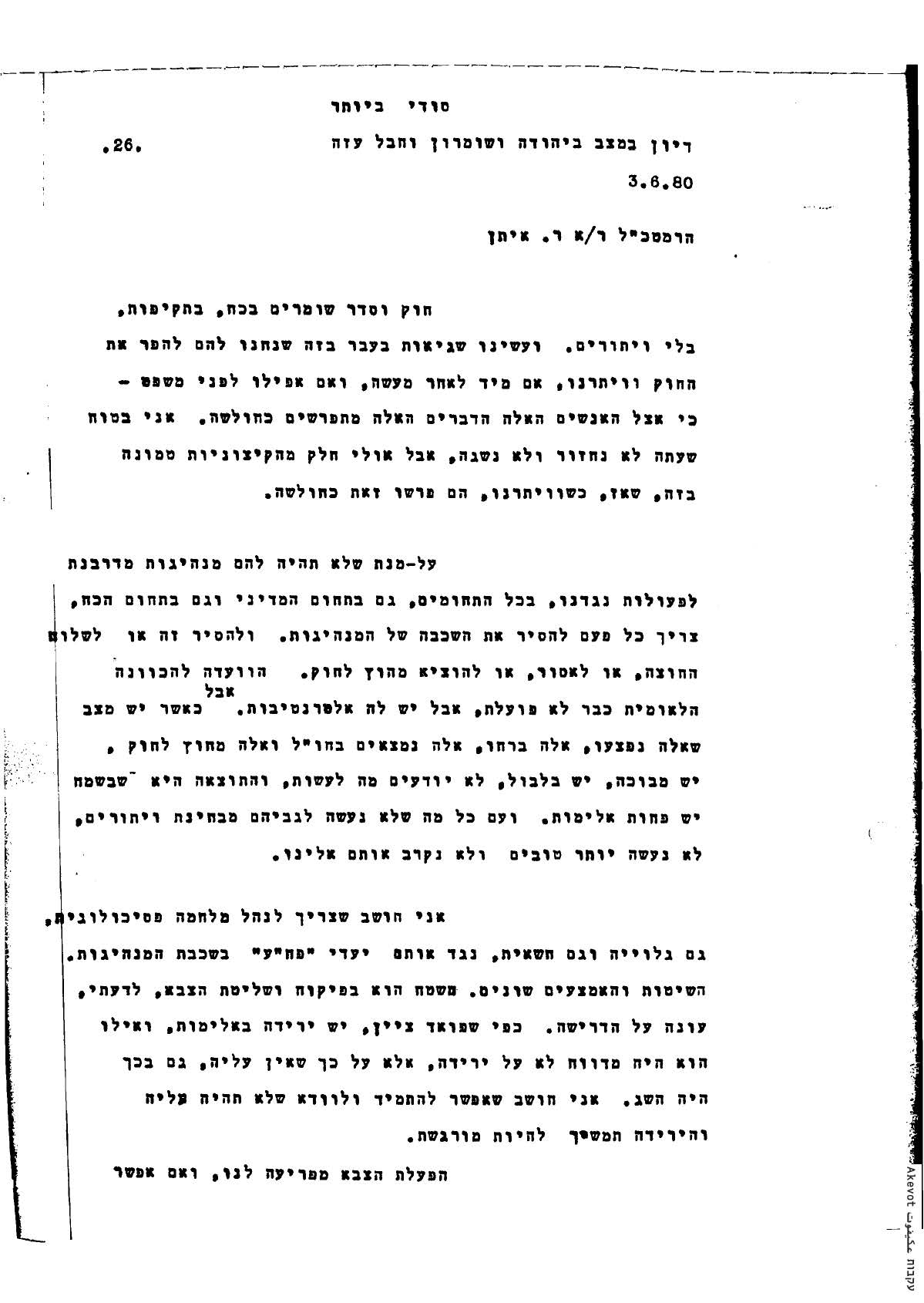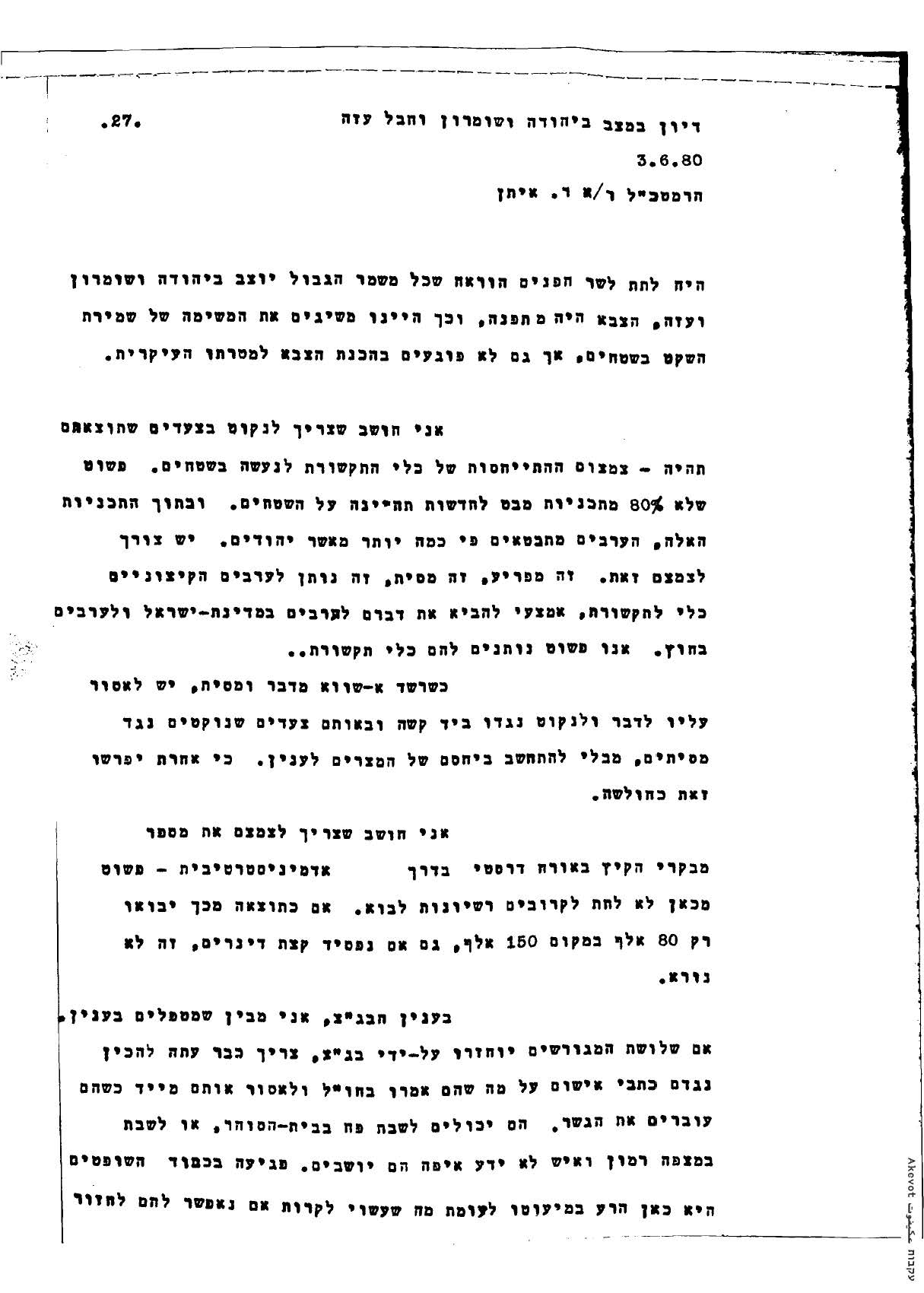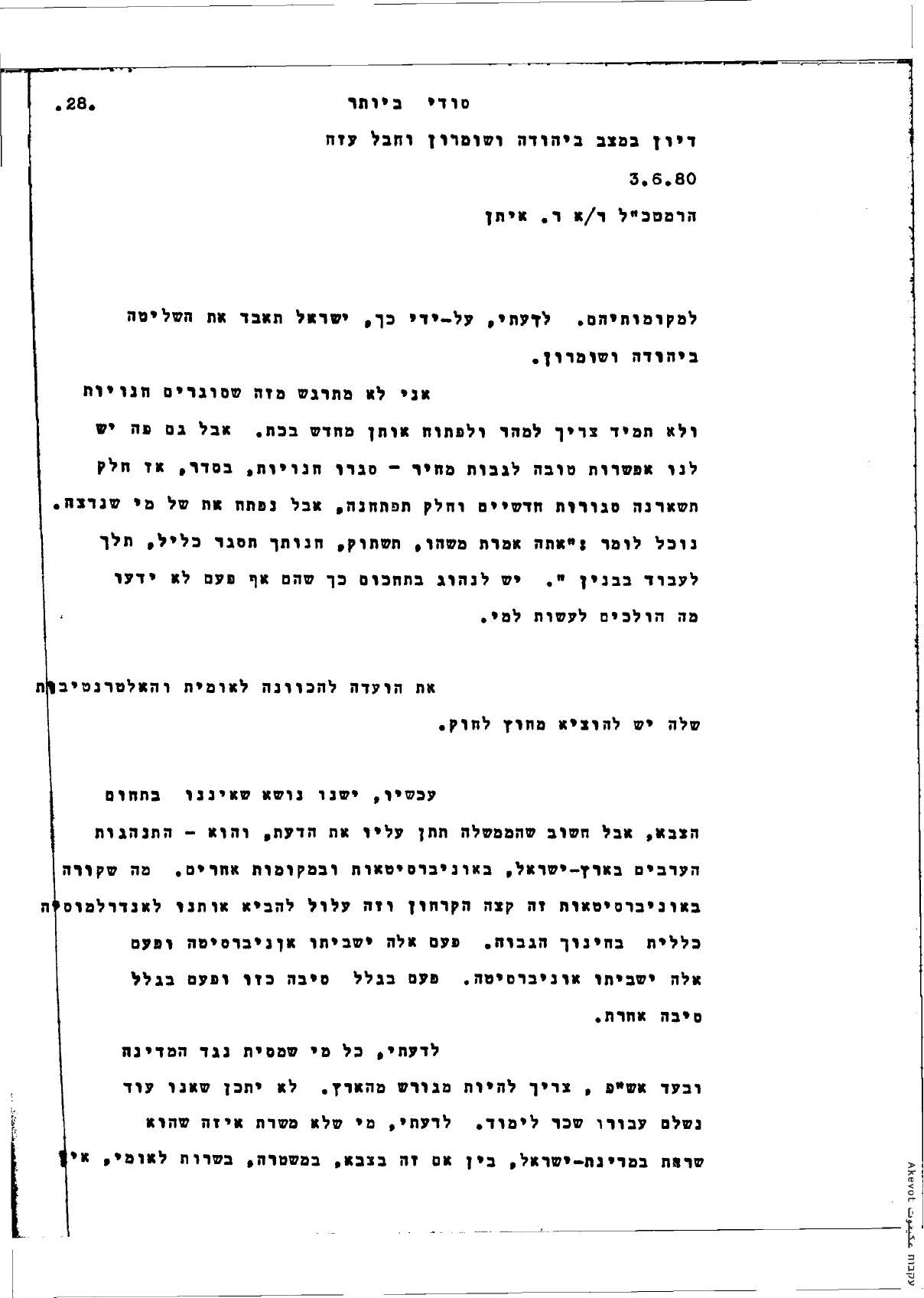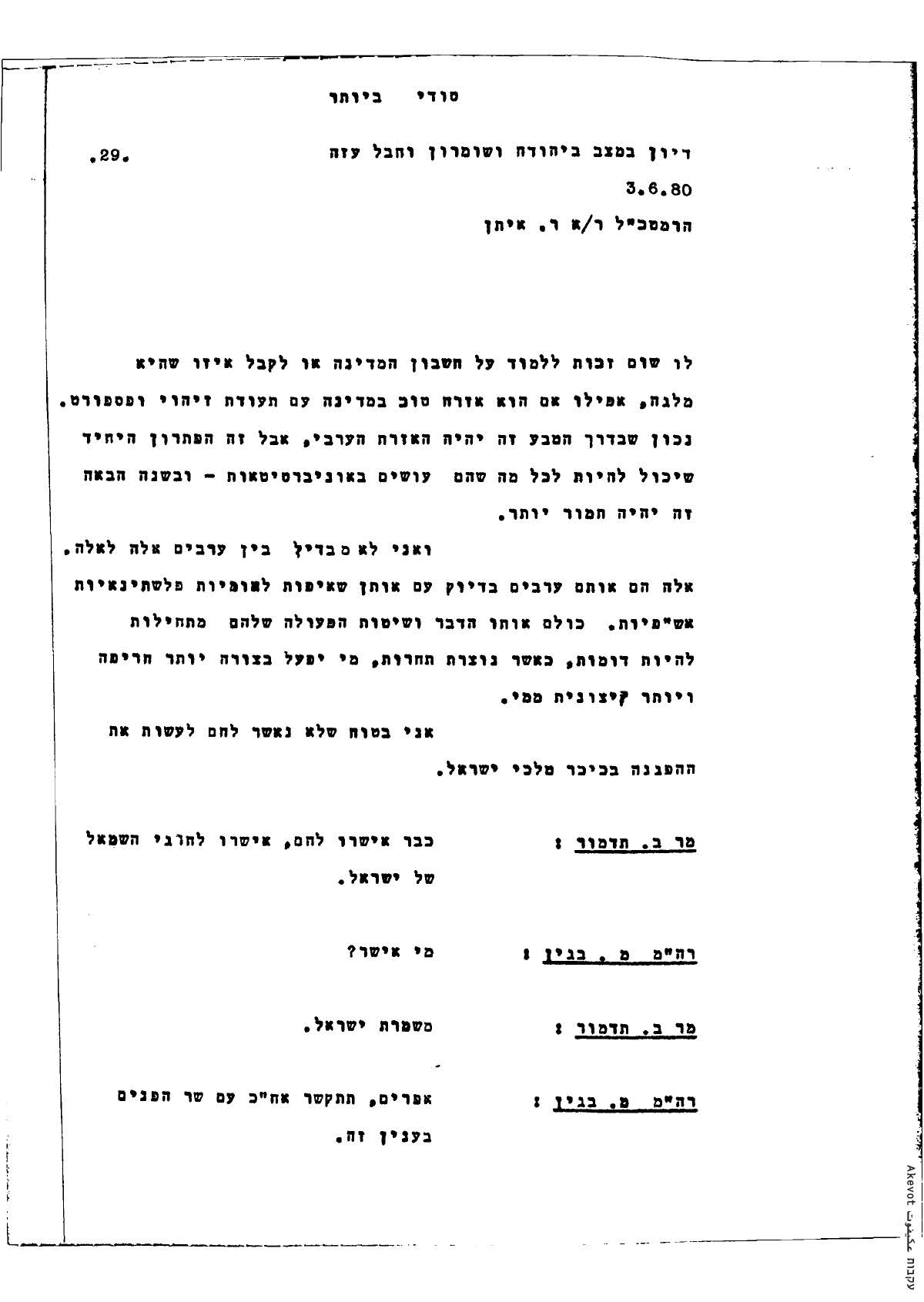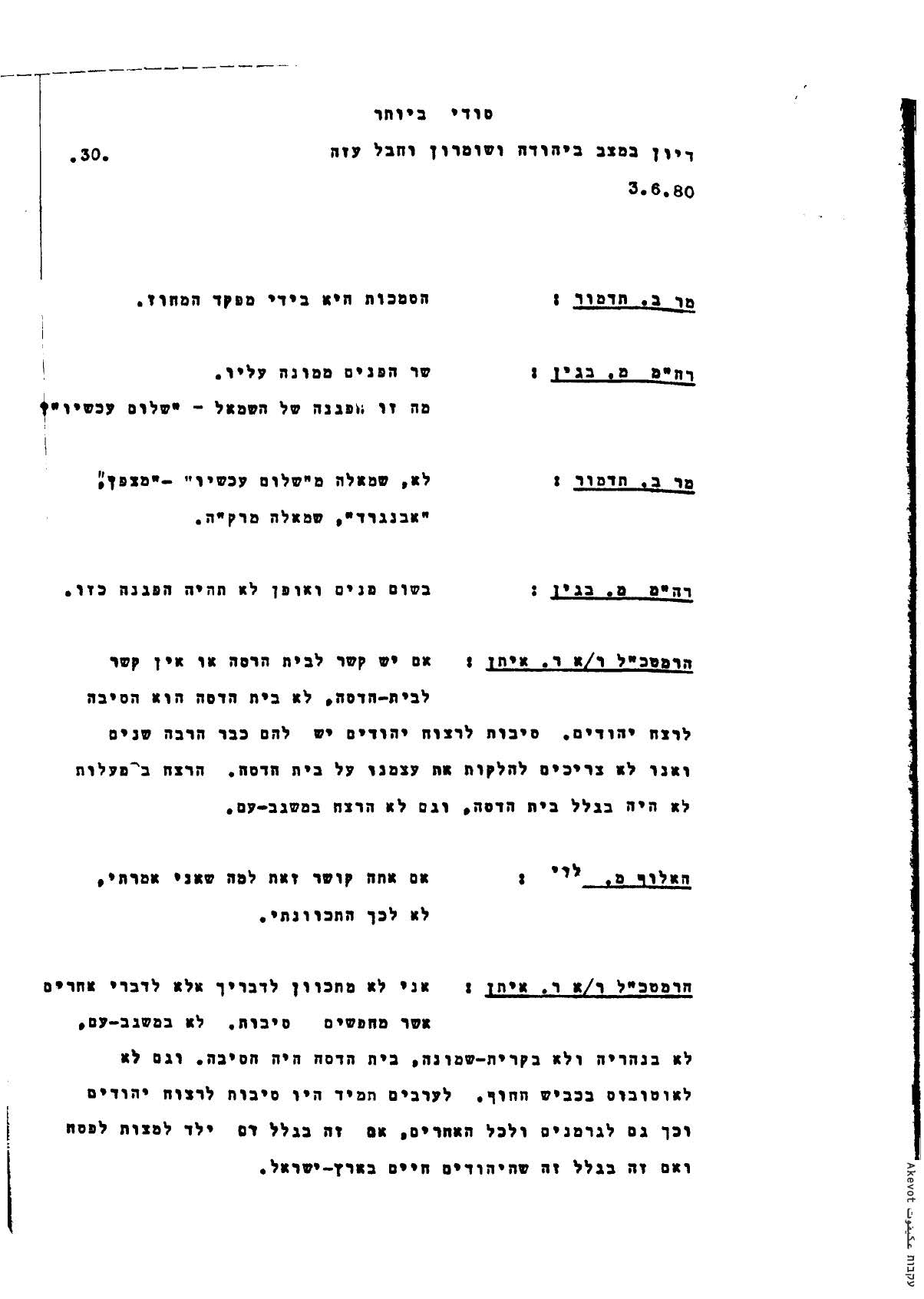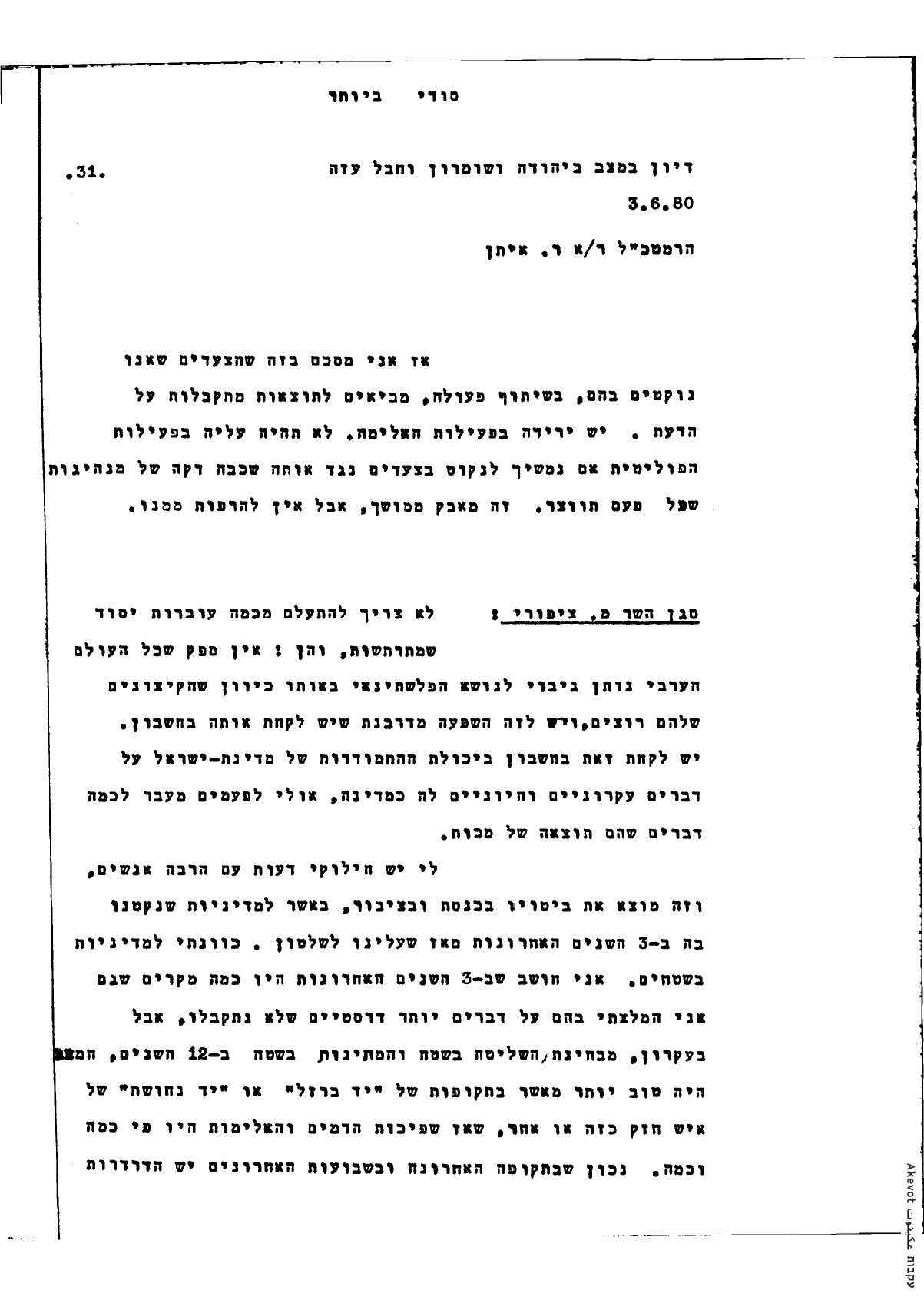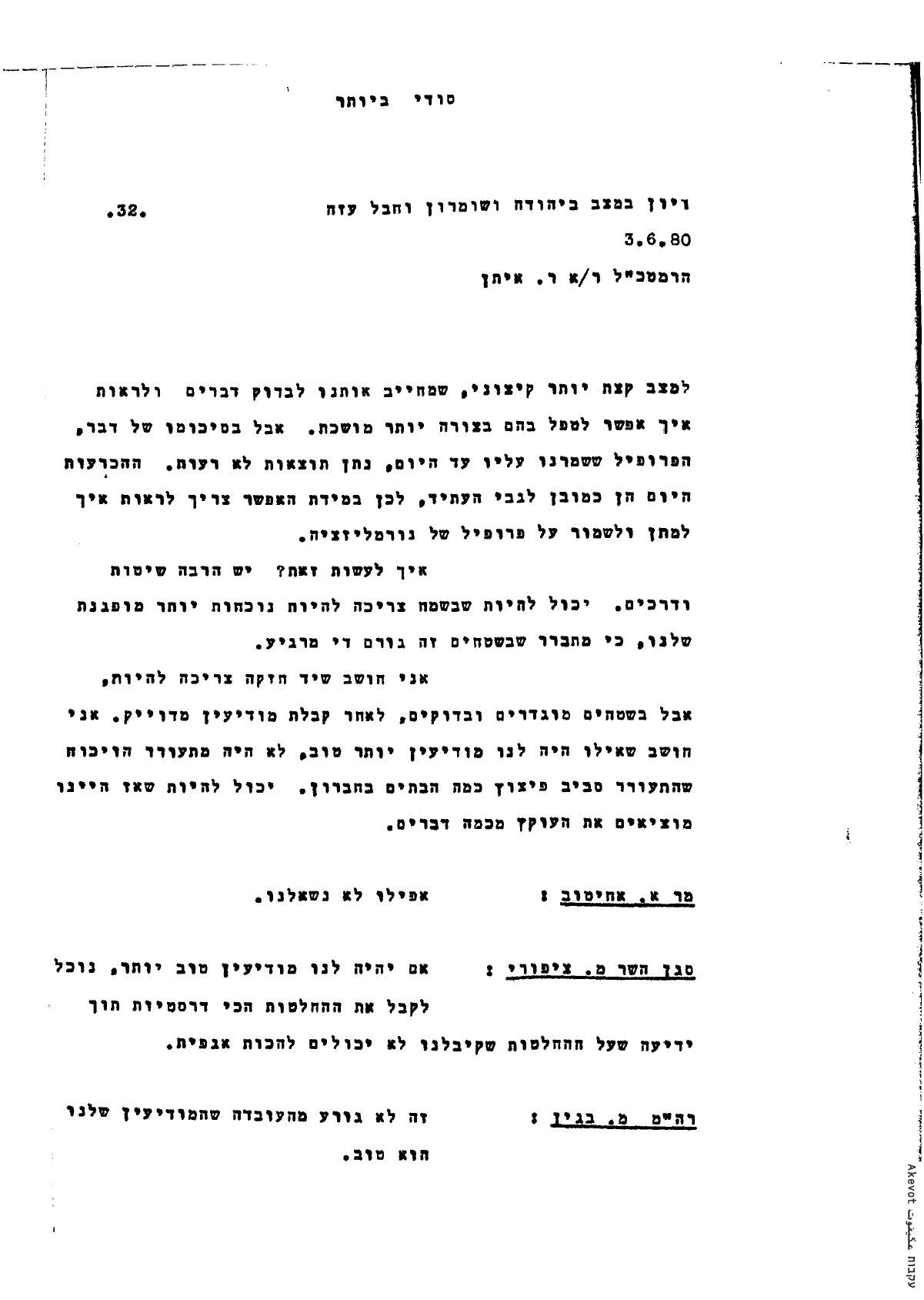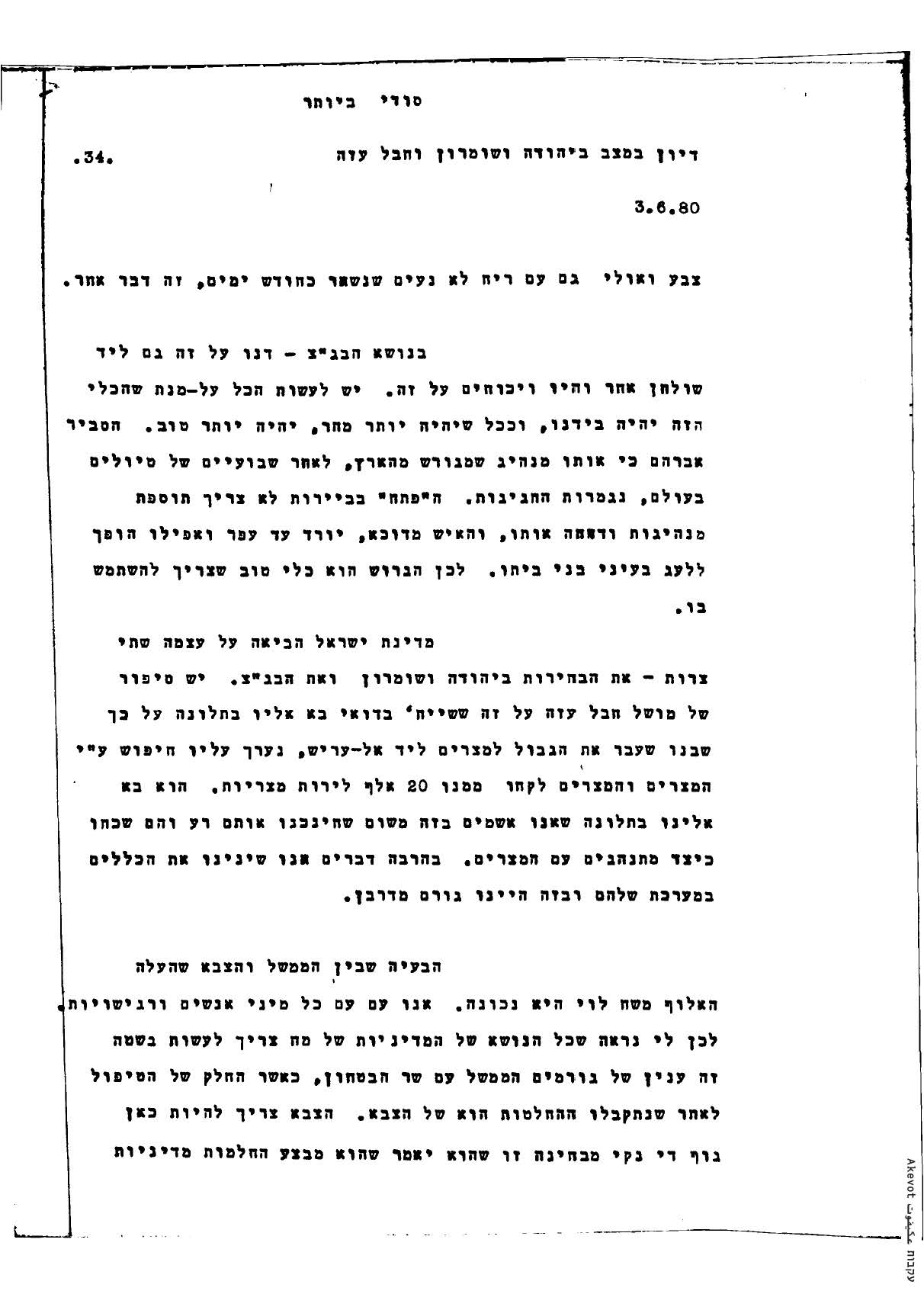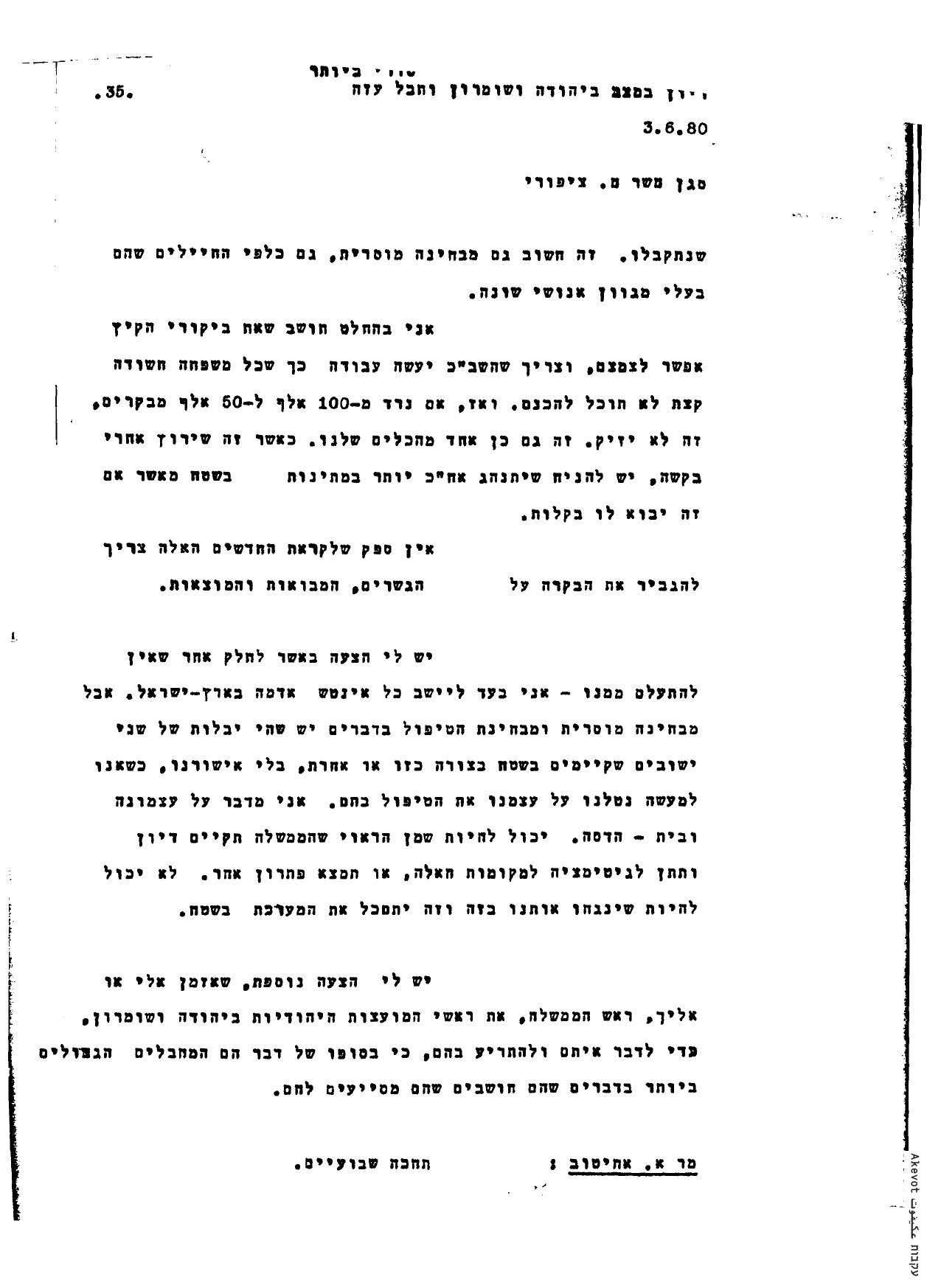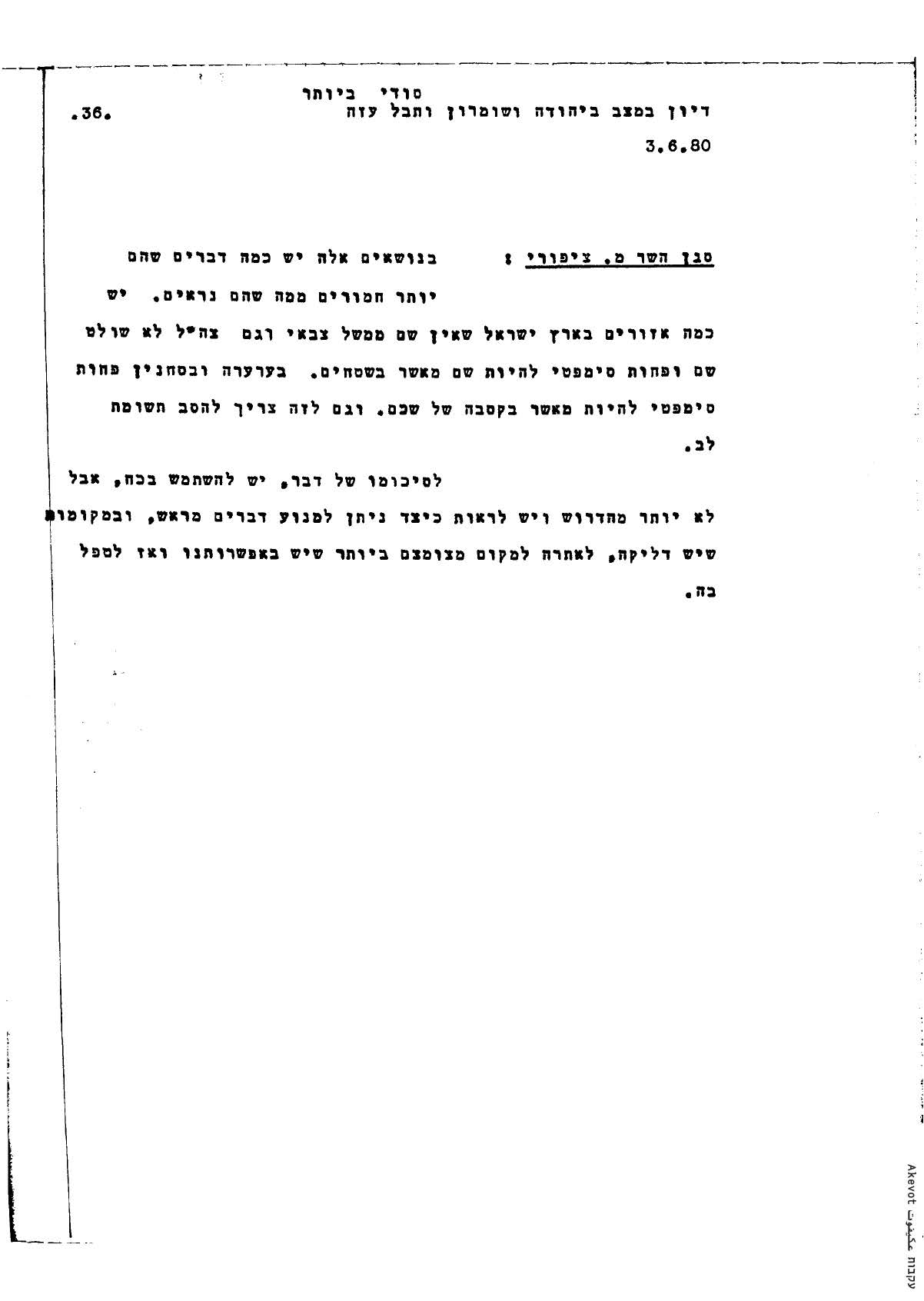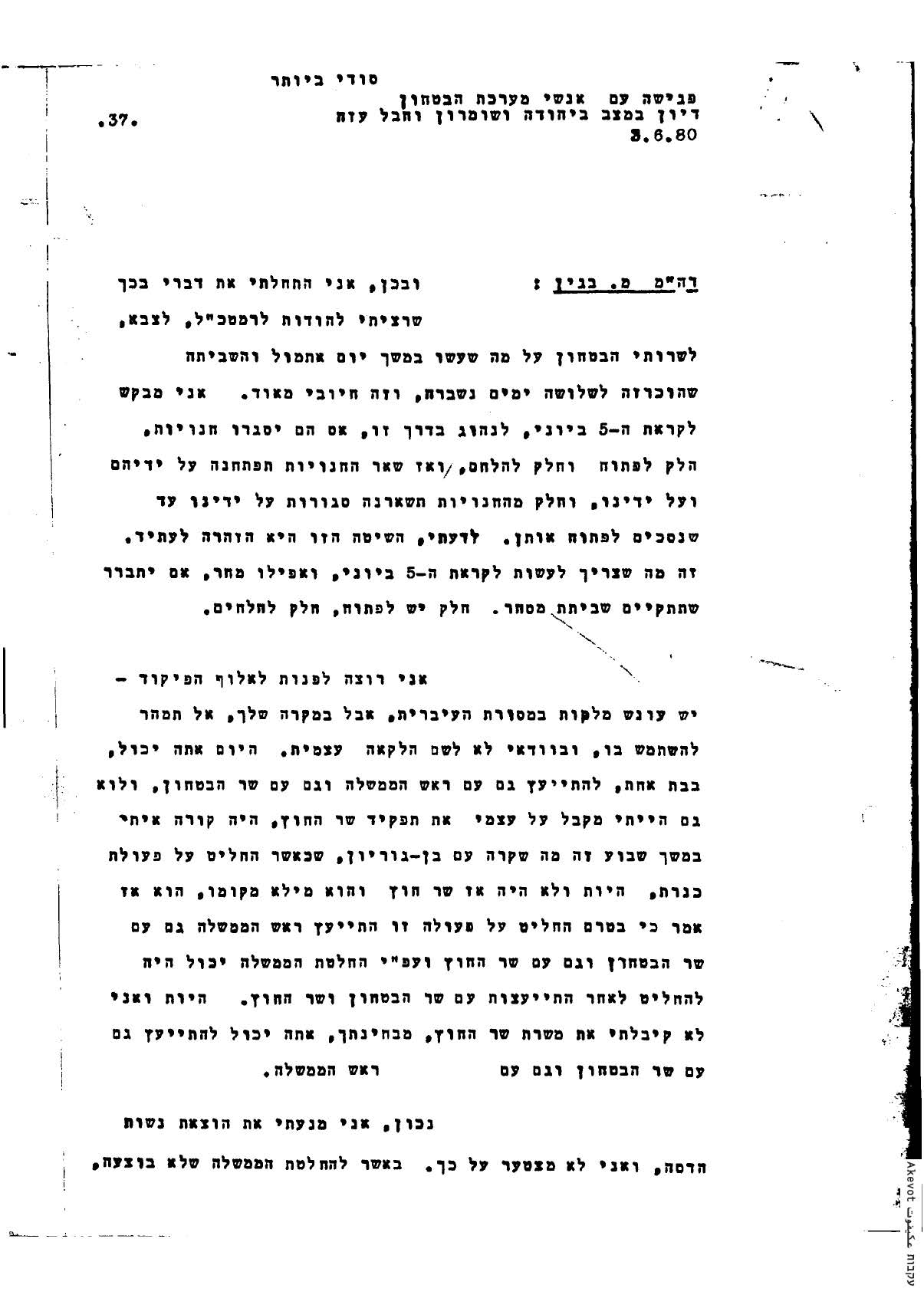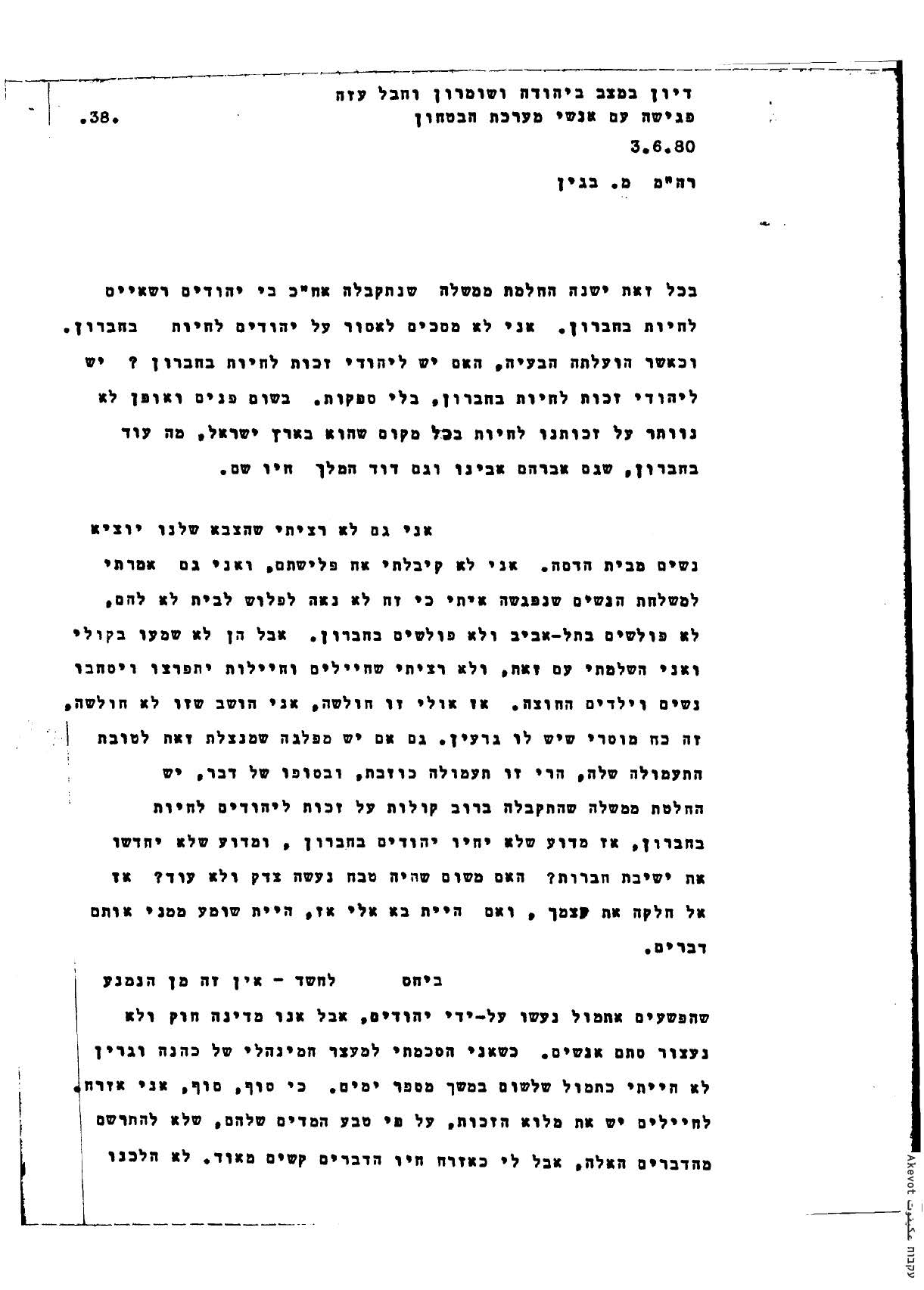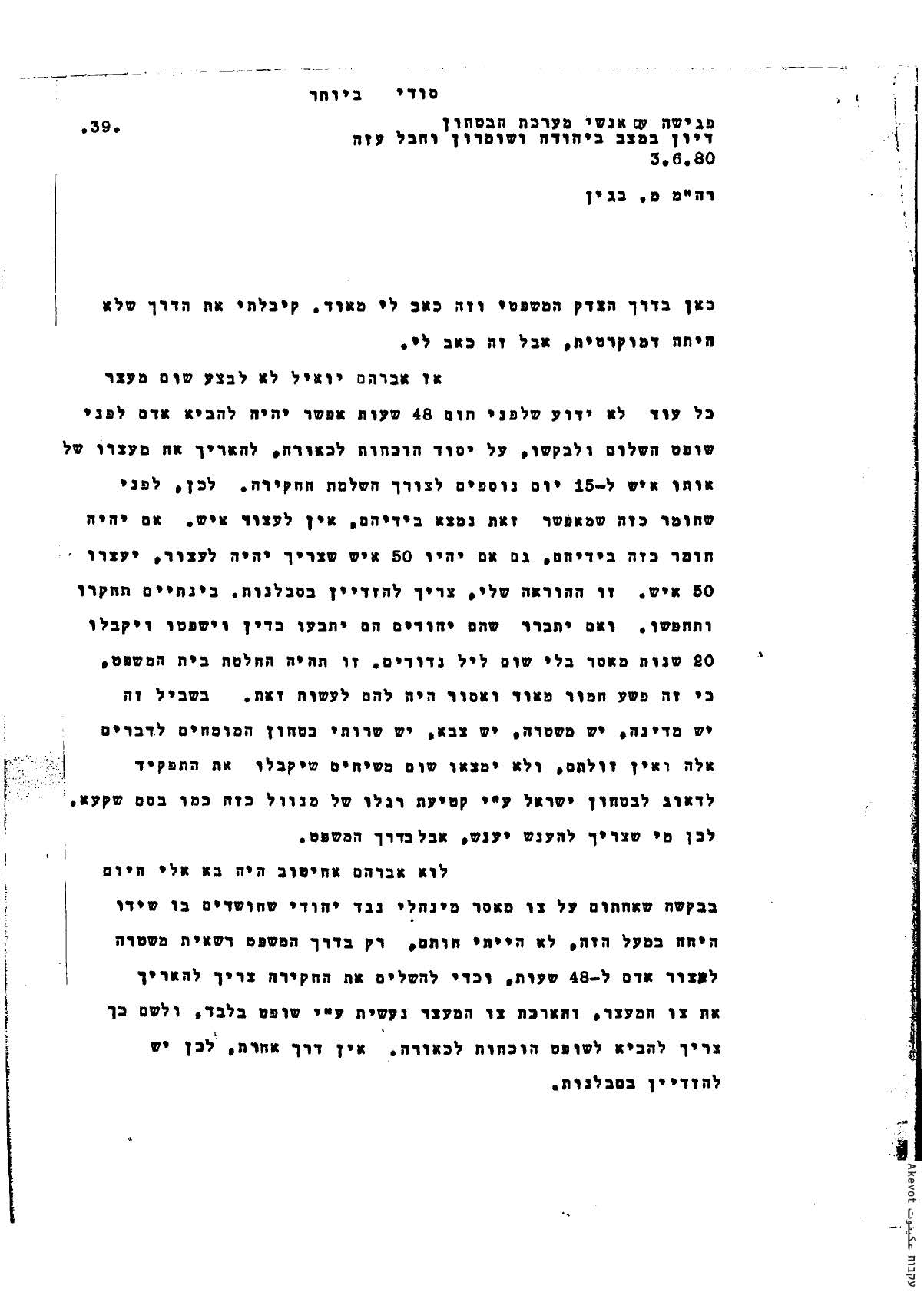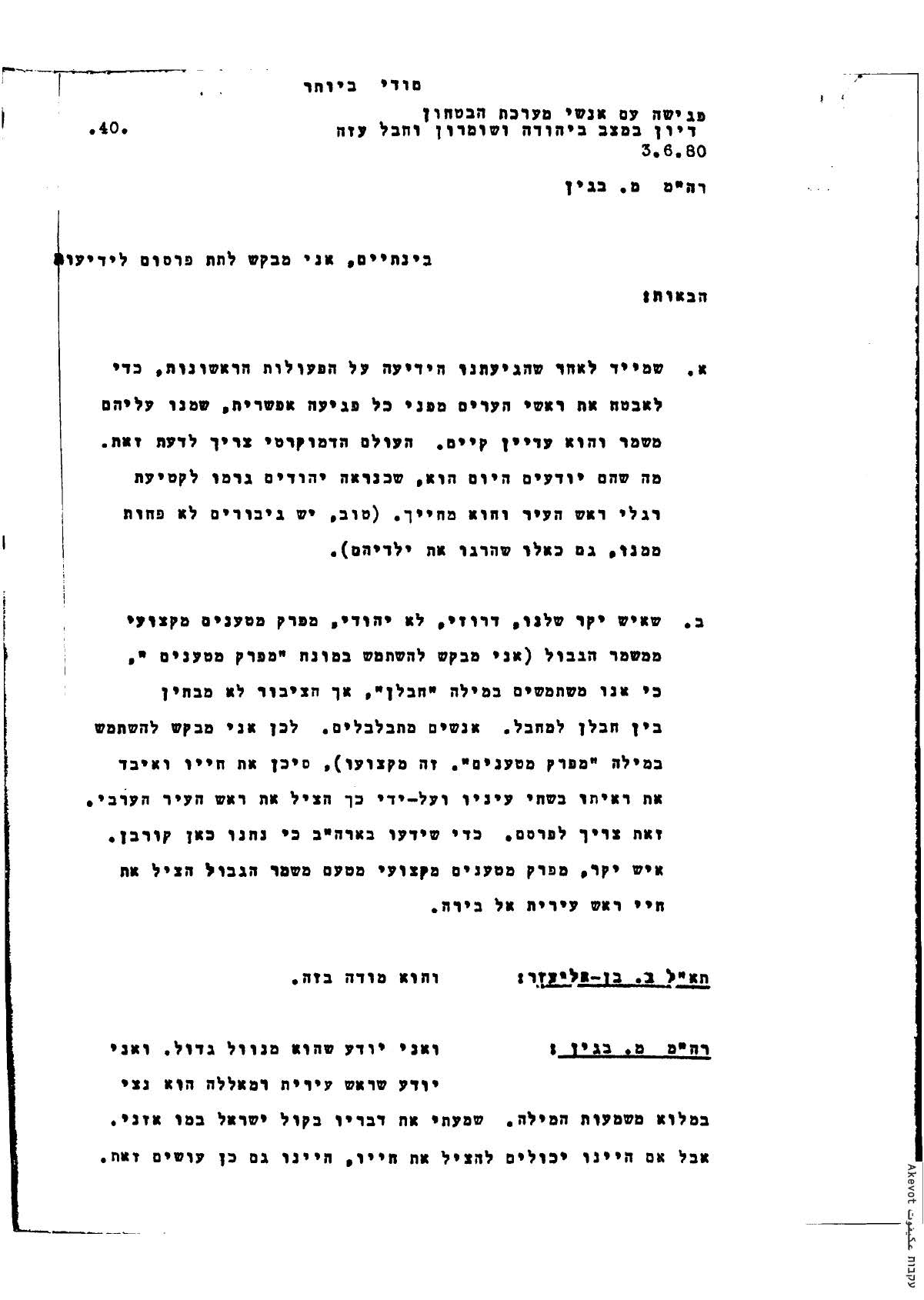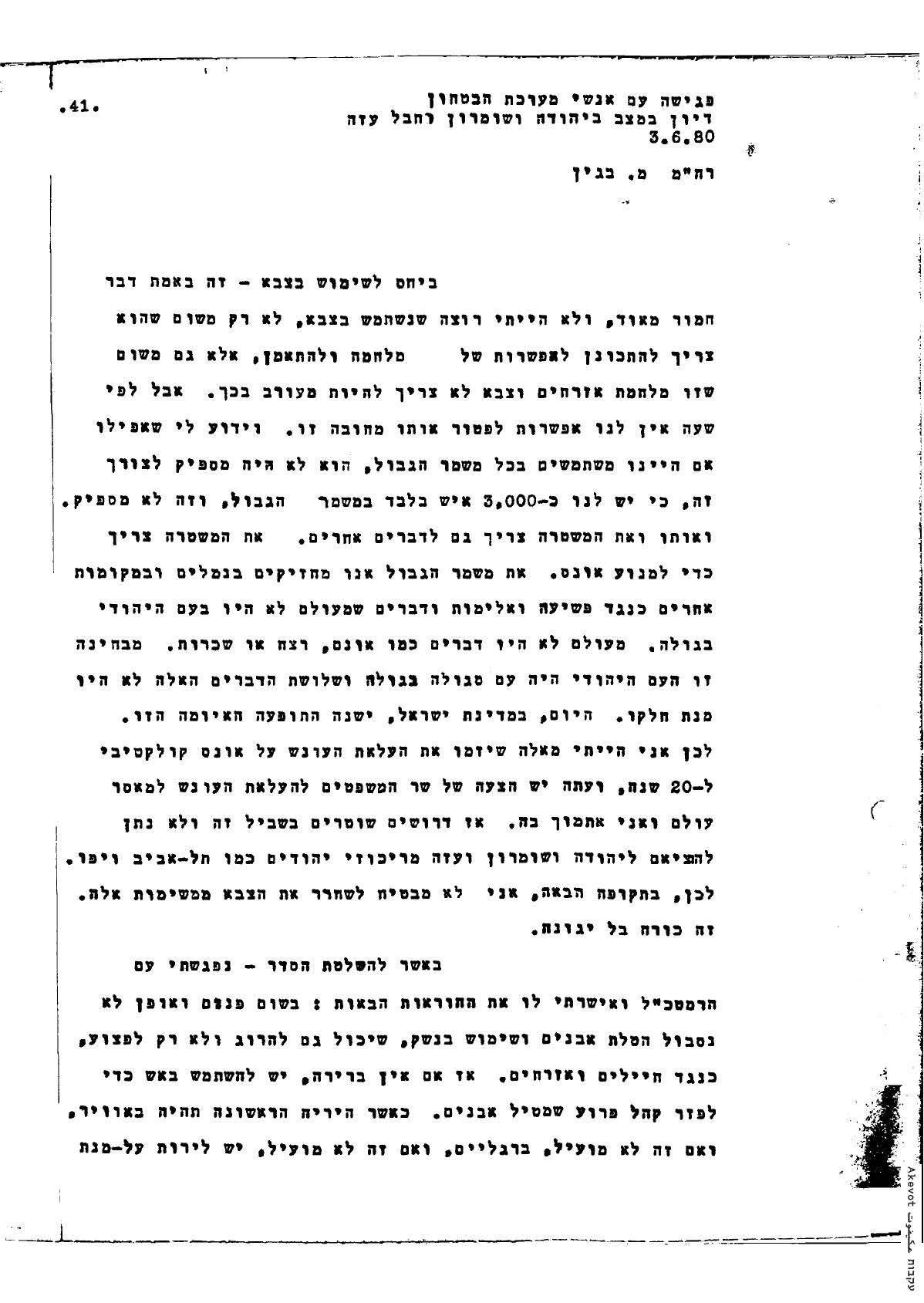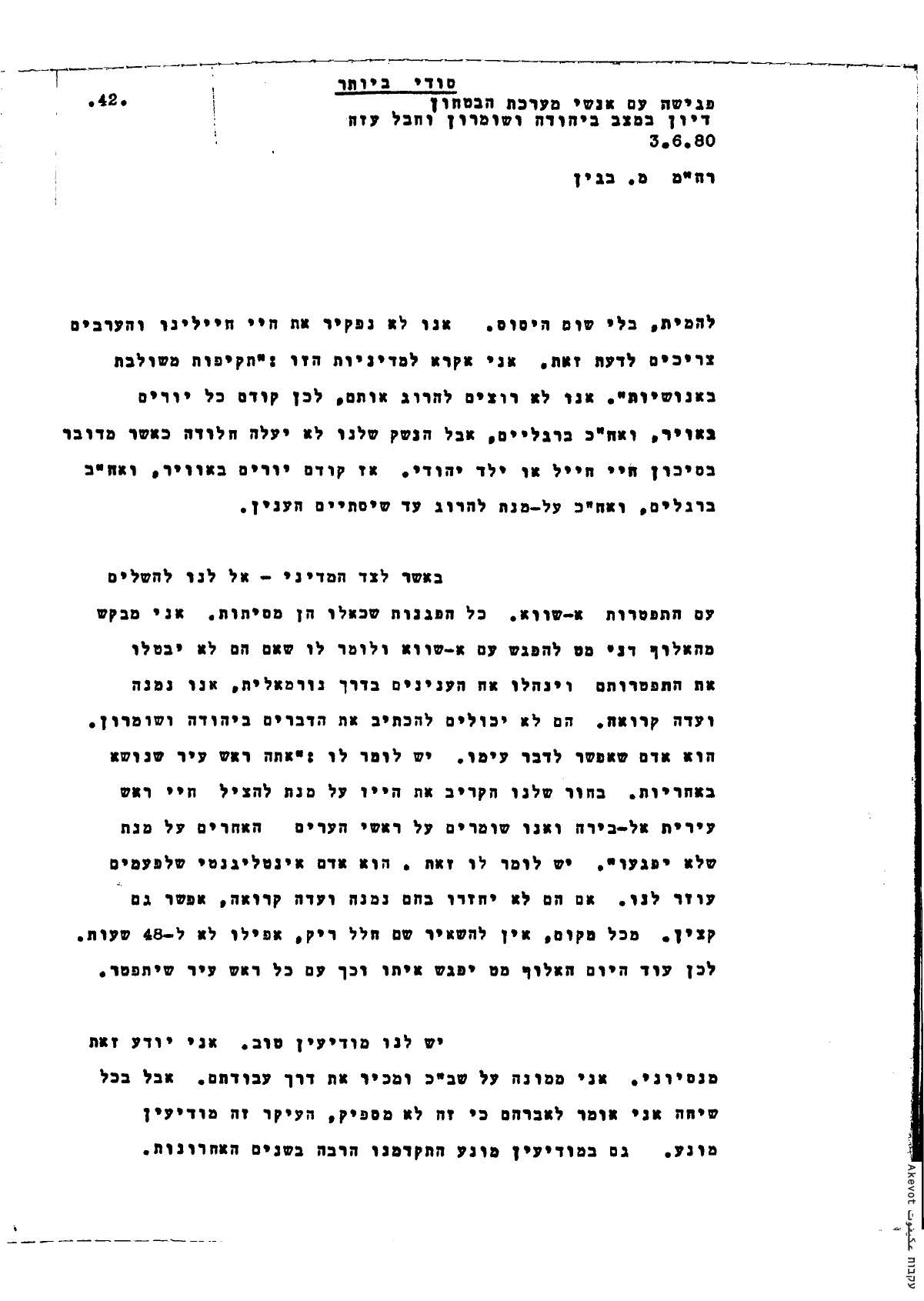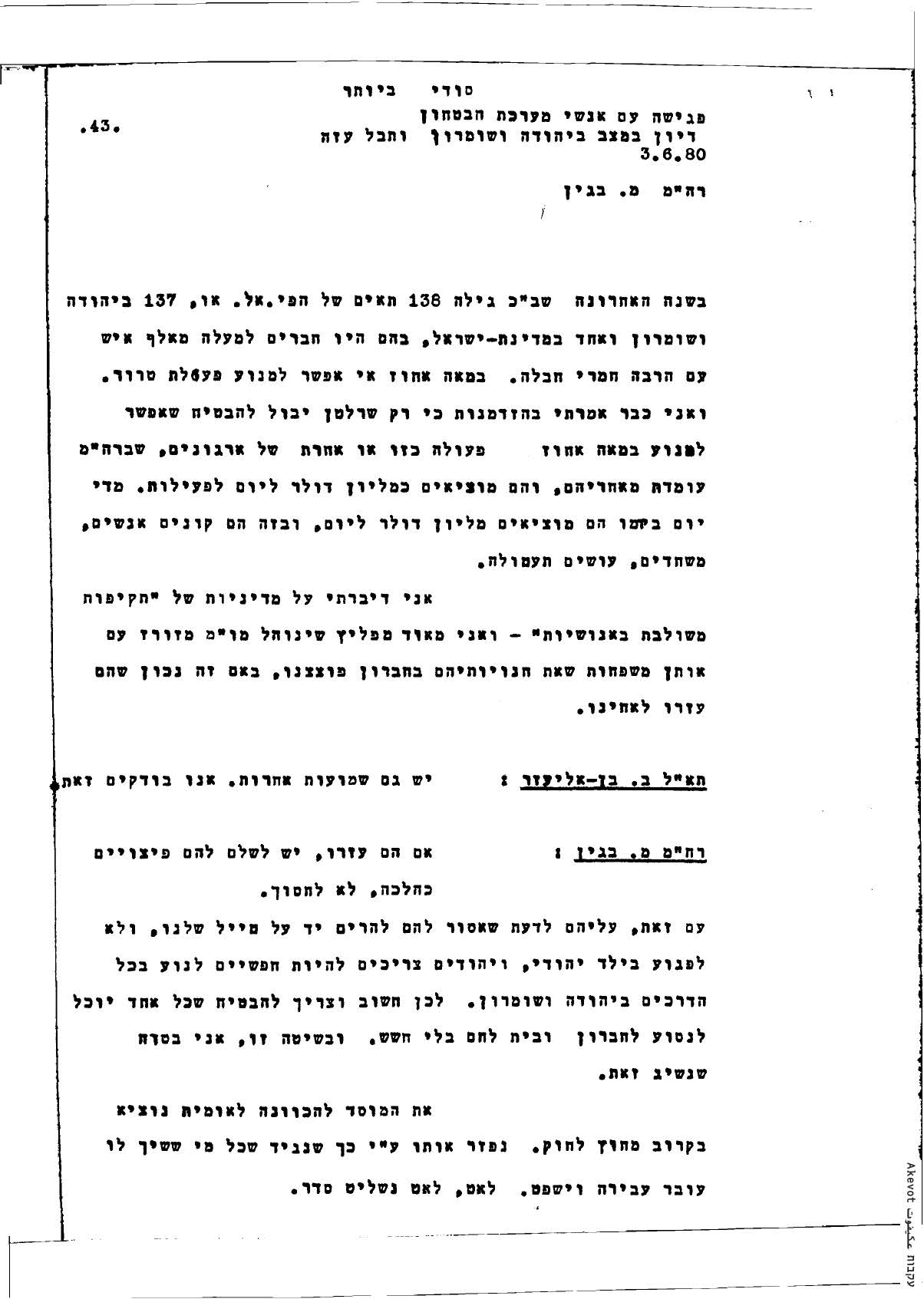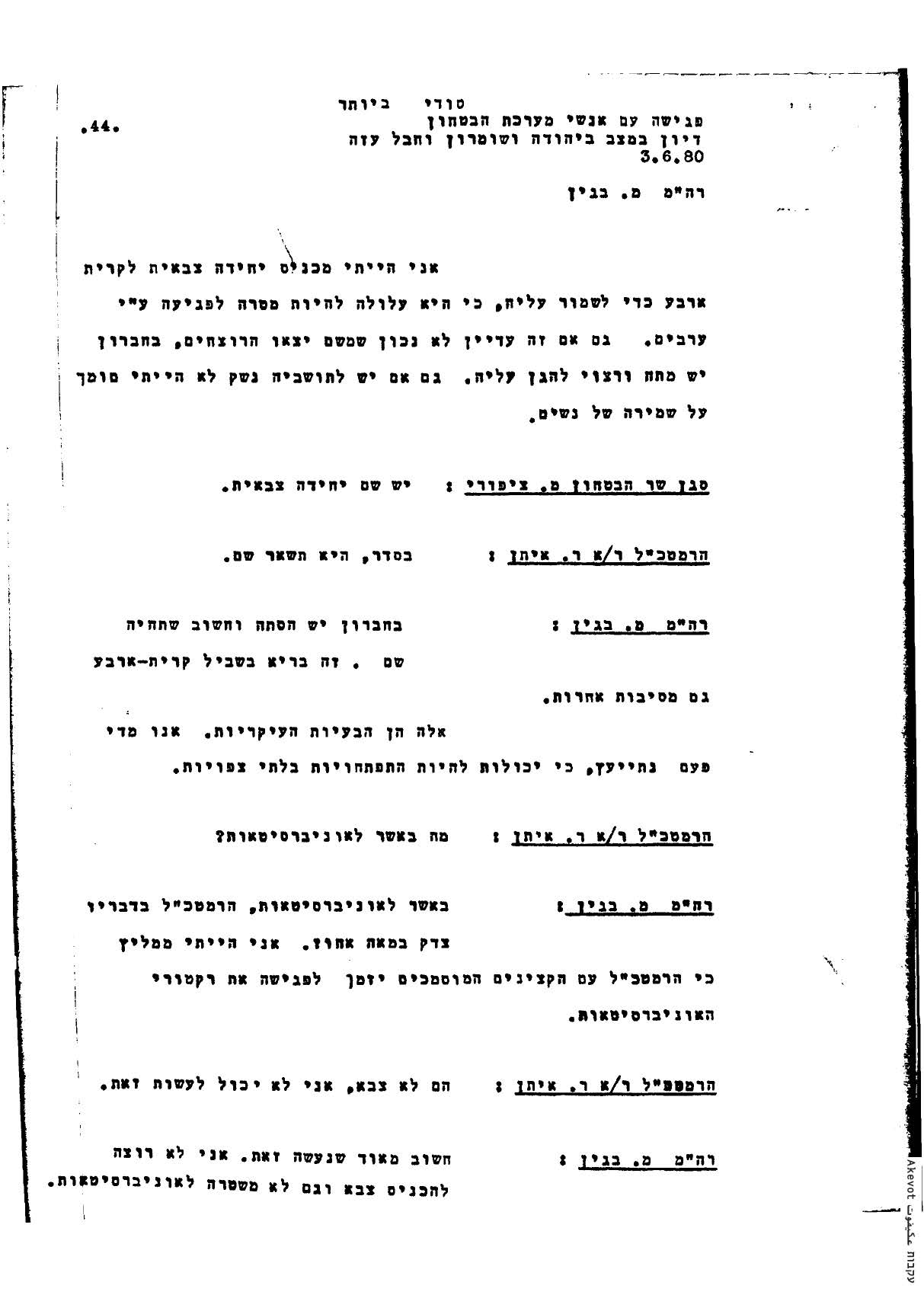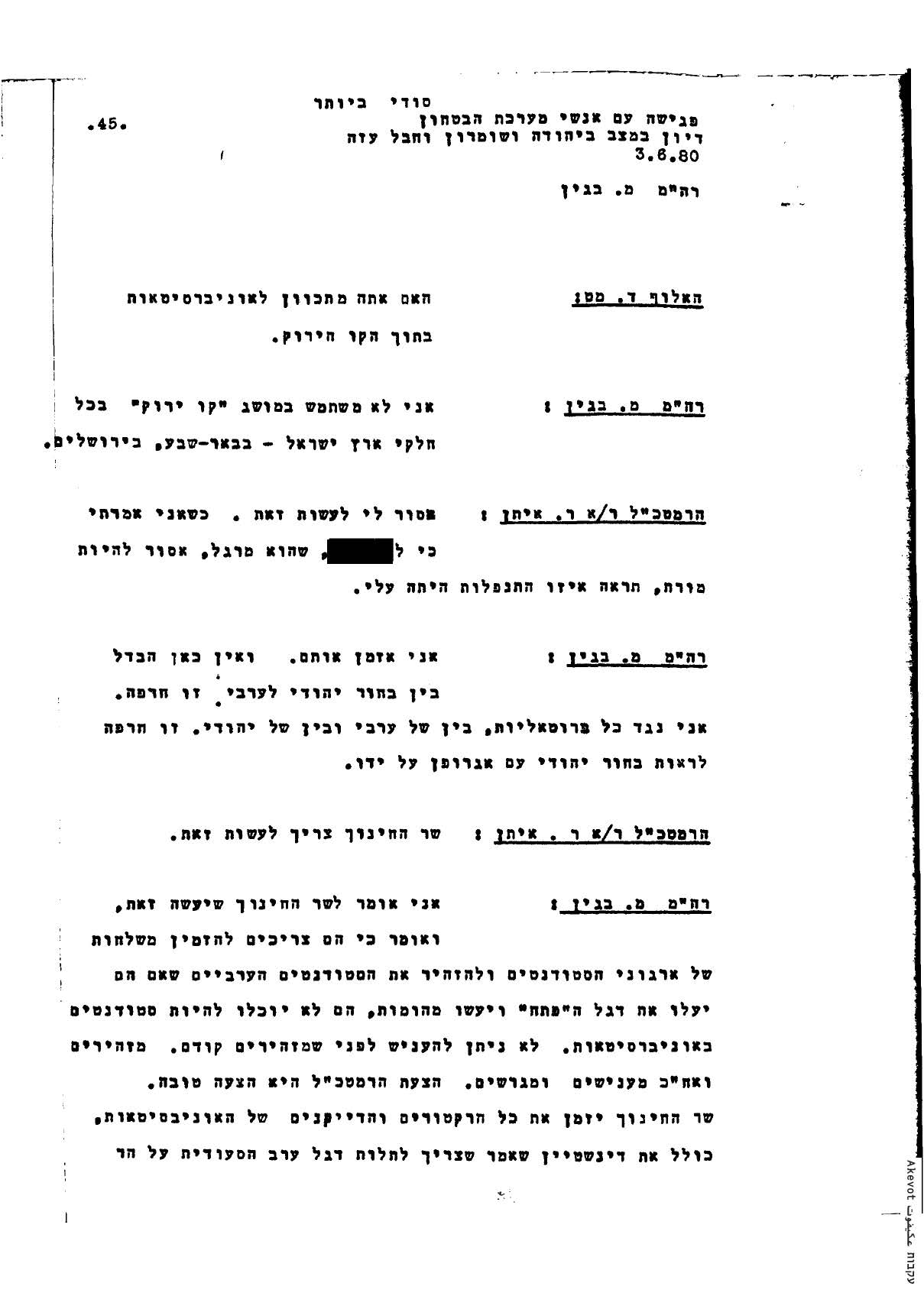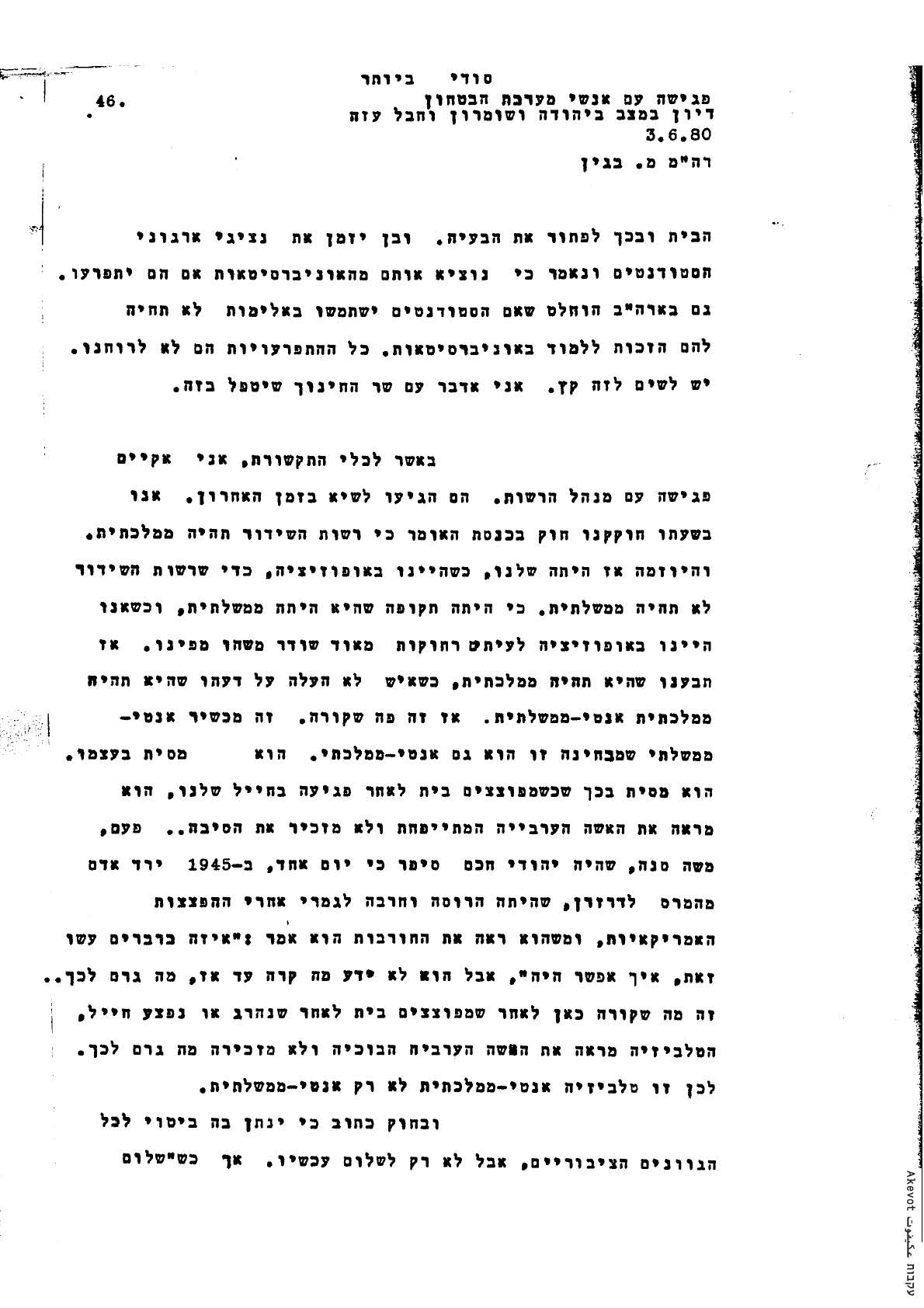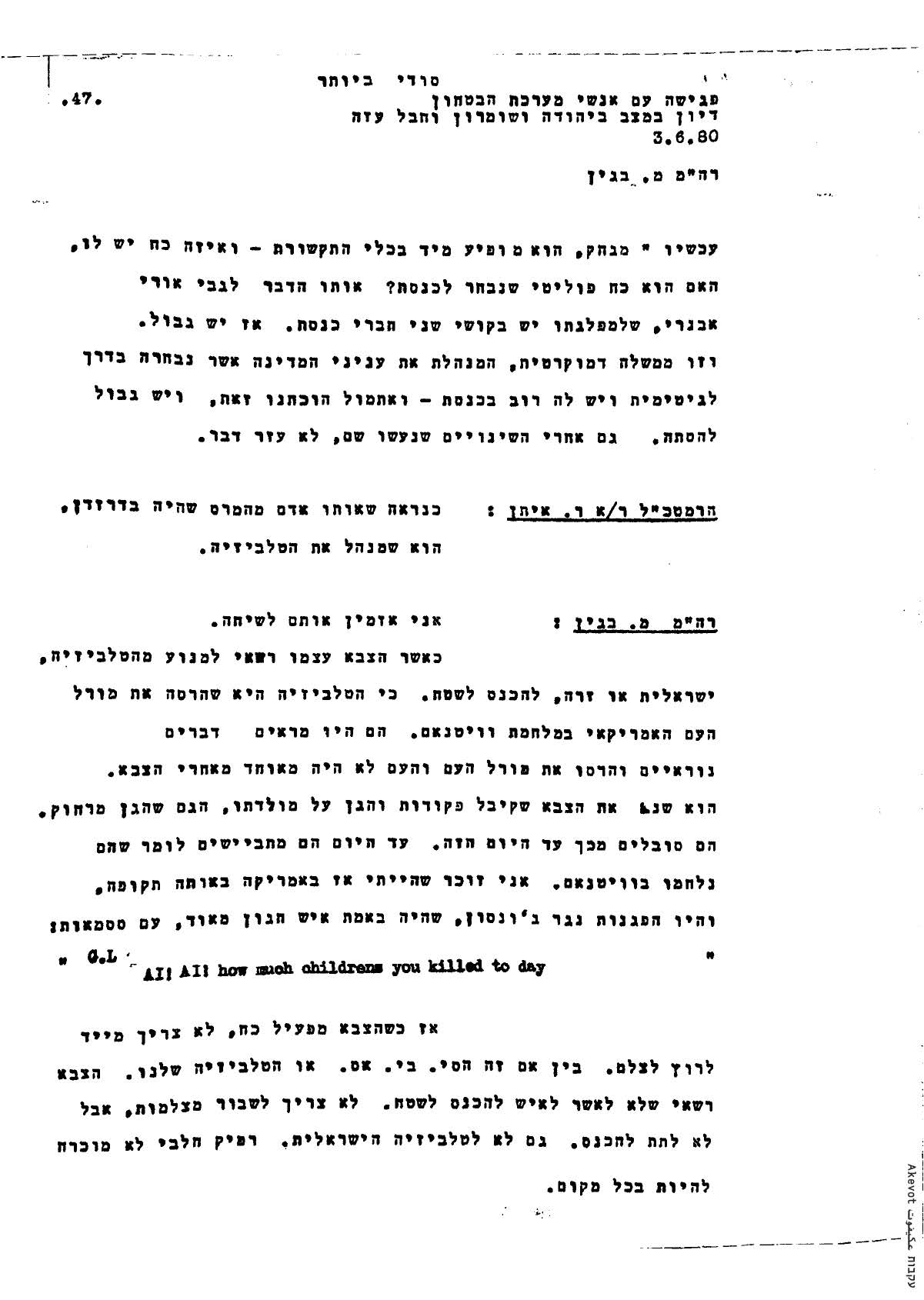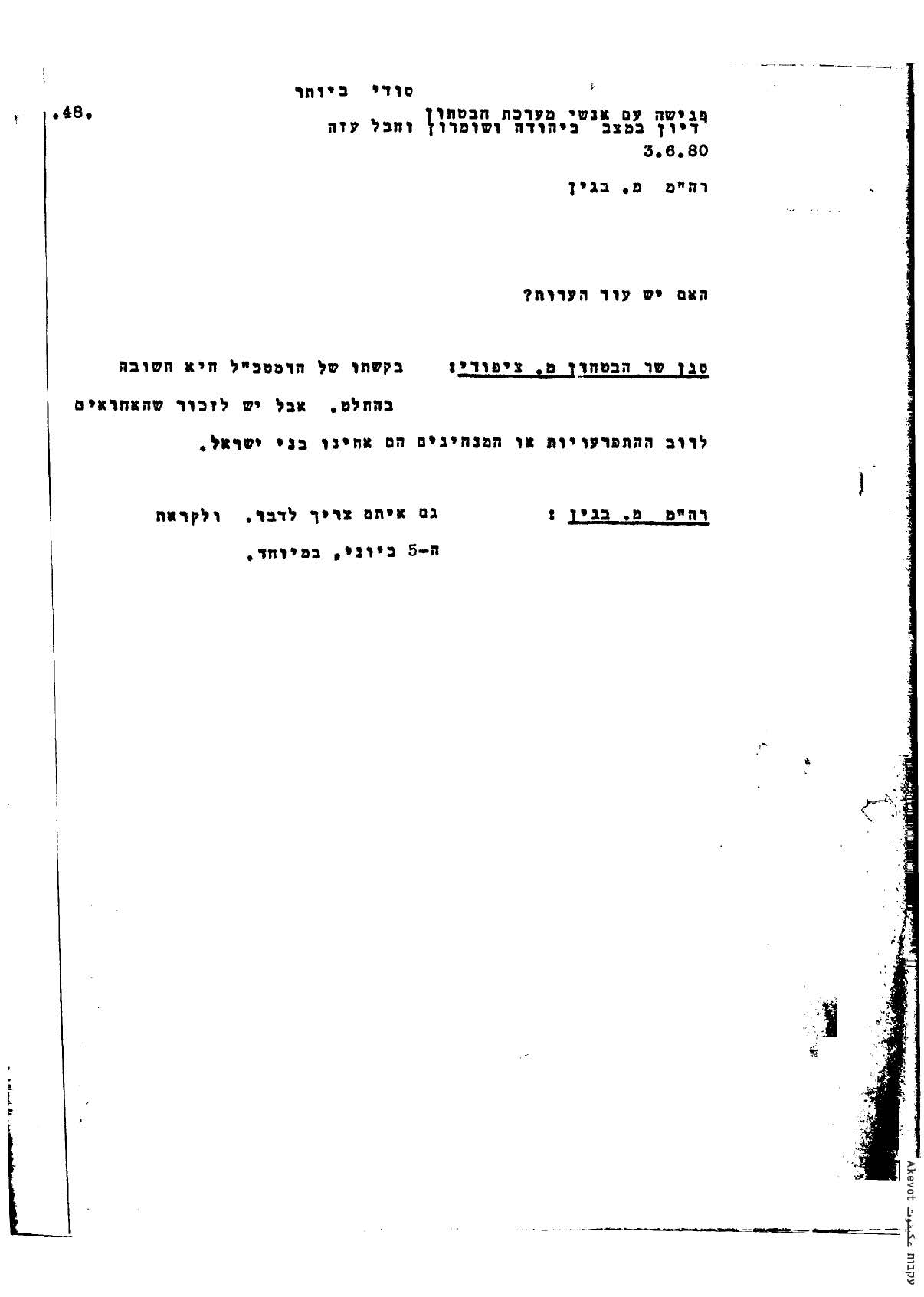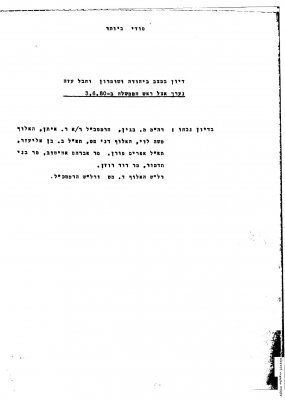The 48 pages of transcripts document a 1980 consultation Prime Minister Menachem Begin held with top security officials the day after the first attack by the Jewish Underground, in which two Palestinian mayors and a police explosives expert were injured. The discussion begins with the attack and its implications and continues with a string of topics including law enforcement on settlers, High Court of Justice involvement in security matters, restrictions on media coverage of the Territories and the silencing of political protest.
On Monday morning, June 2, 1980, three bombs went off in different locations in the West Bank. The explosions in the cars belonging to Nablus Mayor Bassam a-Shaq’a and Ramallah Mayor Karim Khalaf severely wounded the two, and both had to have their legs amputated. The third bomb, intended to harm al-Bira Mayor Ibrahim Tawil, went off when Border Police explosives expert Salim Hirbawi tried to defuse it. Hirbawi lost his eyesight. The attack on the mayors came to be known as the first attack by the group dubbed “the Jewish Underground”.
The transcript documents a consultation Menachem Begin, then both prime minister and defense minister, held with top security officials, including IDF Chief of Staff Refael Eitan, General Security Service (GSS) Head Avraham Ahituv, Coordinator of Government Activities in the Territories Dani Matt and Deputy Defense Minister Mordechai Tzipori. Under the title “The Situation in the Judea and Samaria Area and Gaza Strip”, Begin and these senior security figures discussed the attacks on the mayors and a string of other issues related to Israeli policy in the Territories.
Ahituv, then head of the GSS, refused to give the group an update on the progress of the investigation (“I have every reason not to say anything today, even in this discrete forum”). He suggested focusing on crafting Israeli policy for the next few months, given the expected increase in the number of attacks against Israelis and the longstanding crisis in the relationship between Israel and the Palestinian leadership in the Occupied Territories. Ahituv recommended to adhere to a policy aimed at keeping the peace and engaging with the Palestinian municipal leadership.
The figures present at this meeting first reviewed the protests throughout the West Bank and the military’s and GSS’ handling of them. This review evoked a discussion of the jurisdiction of the High Court of Justice over government actions. Major General Matt noted the need to prepare for the possibility that the High Court would order the return to the Territories of three Palestinian public leaders who had been deported to Jordan without a hearing, namely Hebron Mayor Fahed Qawasmeh, Halhul Mayor Muhammad Milham and a religious cleric from Hebron Rajeb a-Tamimi. “If we have to bring back [the deportees, on the court’s orders], it would be a disaster in my opinion”, Prime Minister Begin responded, “But, the truth is that as far as the state is concerned, the honorable justices will decide. The government has to respect the court’s orders. The court is above the government”. The prime minister did add, however: “There cannot be repeated interference in matters of security. In other words, we have to start arguing [in the High Court] that certain matters are non-justiciable, and if that doesn’t help, there will be no choice but to change the law”.
In addition to the attacks on the mayors and the measures taken in their wake, meeting participants also discussed a wide range of general questions regarding the government’s conduct in the Territories, issues that are still at the heart of the public discourse in Israel around the occupation. The document also reveals a discrepancy between Prime Minister Menachem Begin’s liberal public image and his positions as expressed on some of the issues. Among the matters discussed: difficulties in enforcing the law on settlers; how to engage with the Palestinian political leadership; the impacts of controlling a civilian population with military might; curbing political resistance inside Israel and limiting the capacity of the press to cover Israeli actions in the occupied territories – the part of the discussion in which the prime minister made the statement quoted in the title of this post, referring to the Arab affairs correspondent of Israel’s sole TV channel at the time (p. 47 in the document).
Redactions in the document: On the orders of the military censorship office, Akevot Institute redacted one word from the copy of the document published here.

